
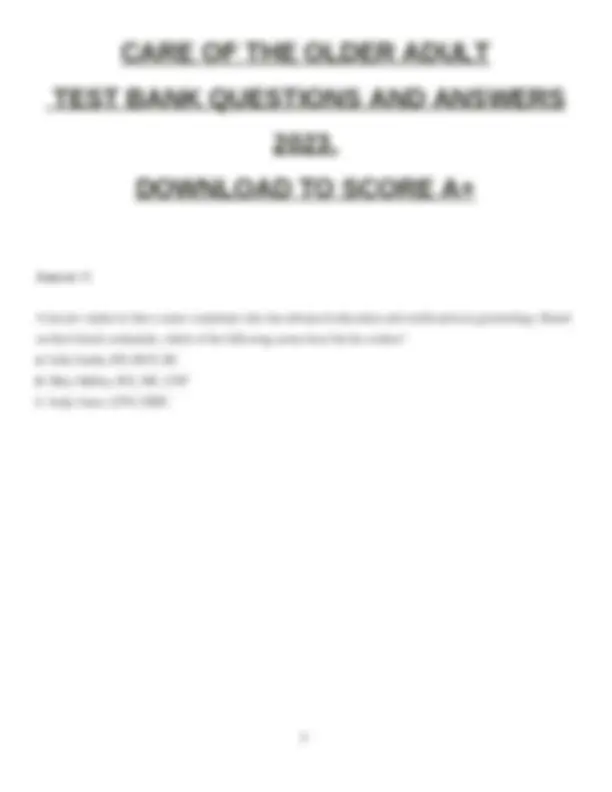
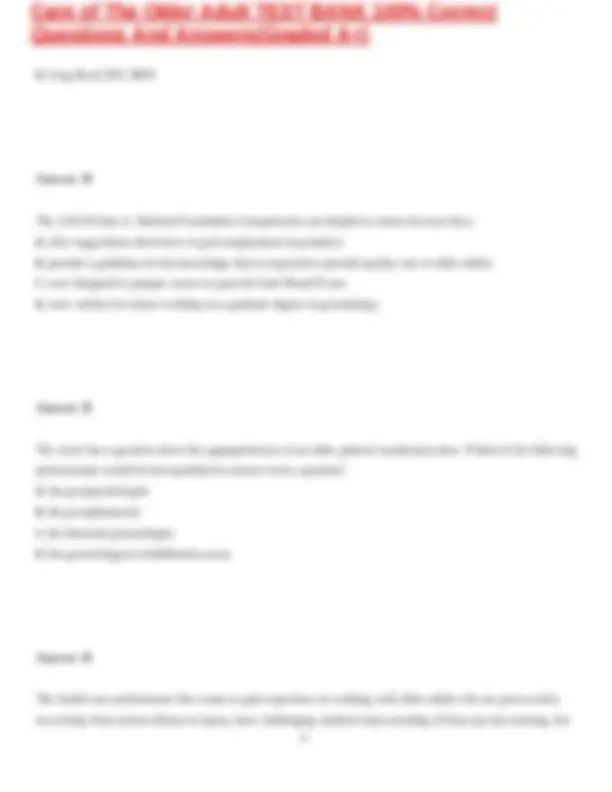
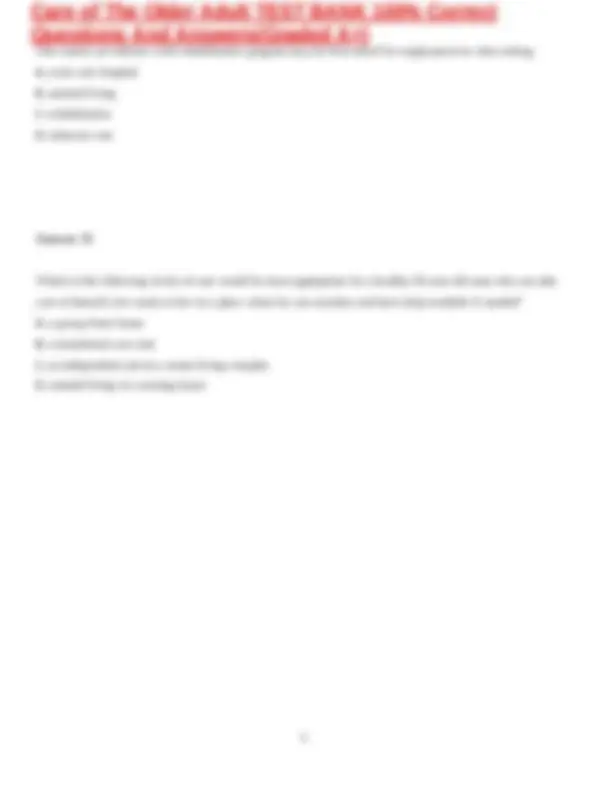
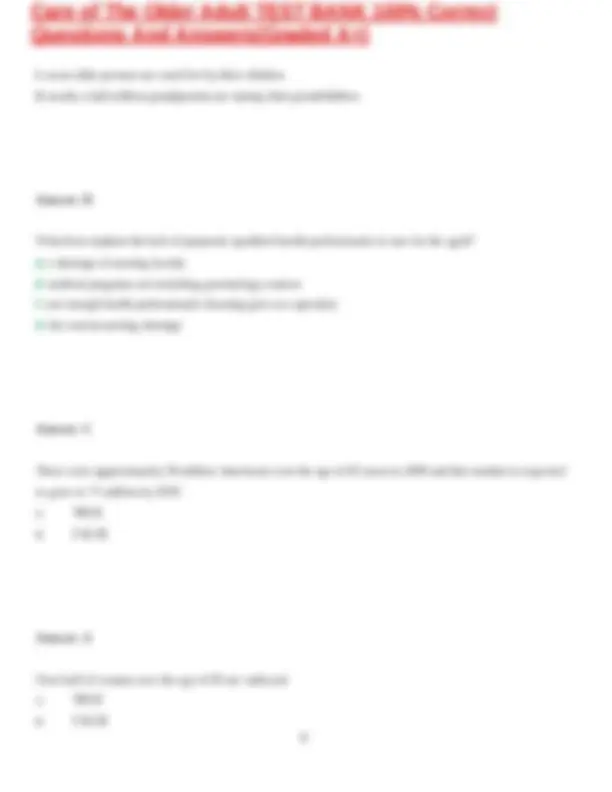
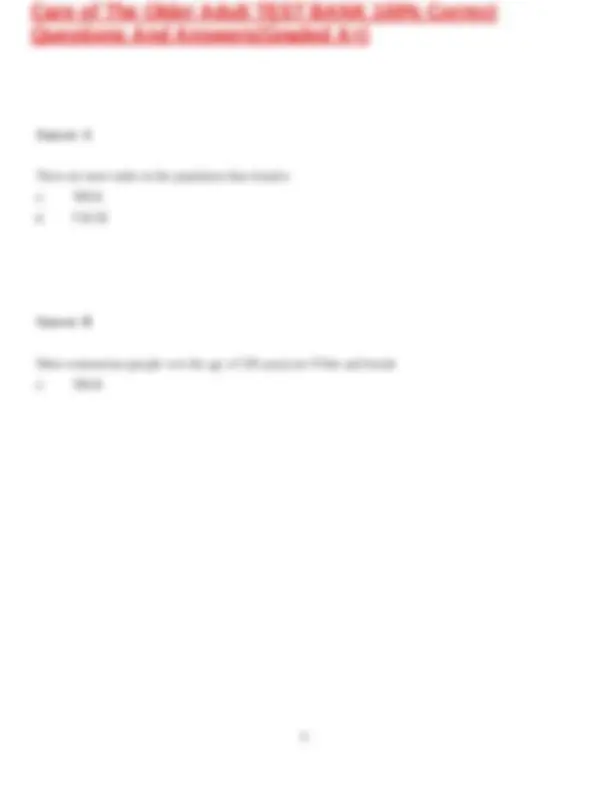
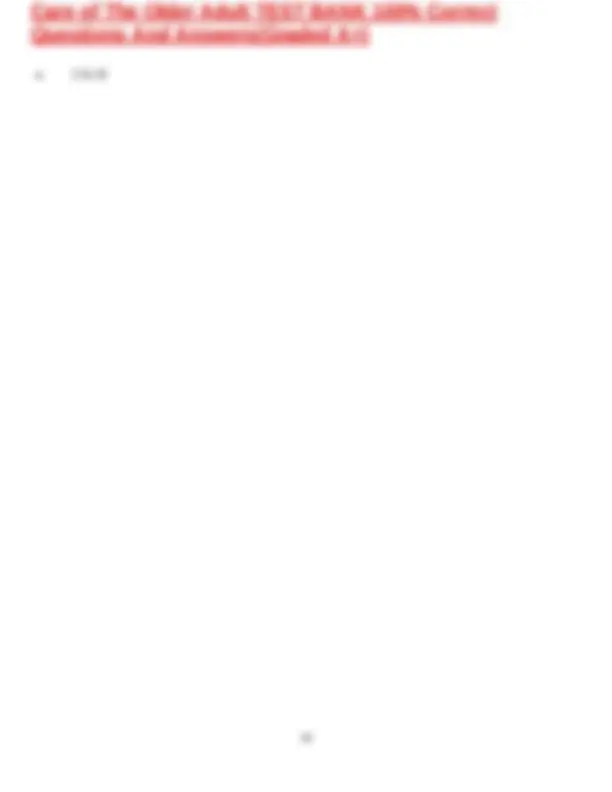
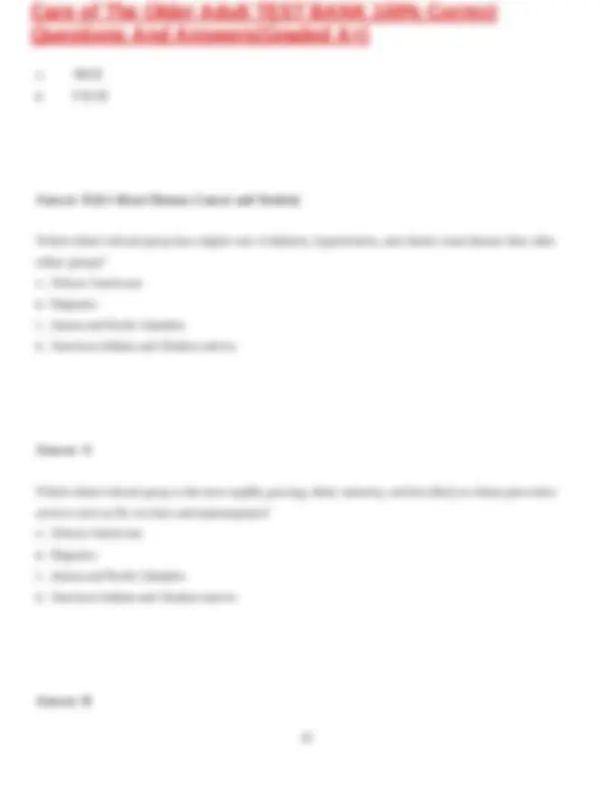
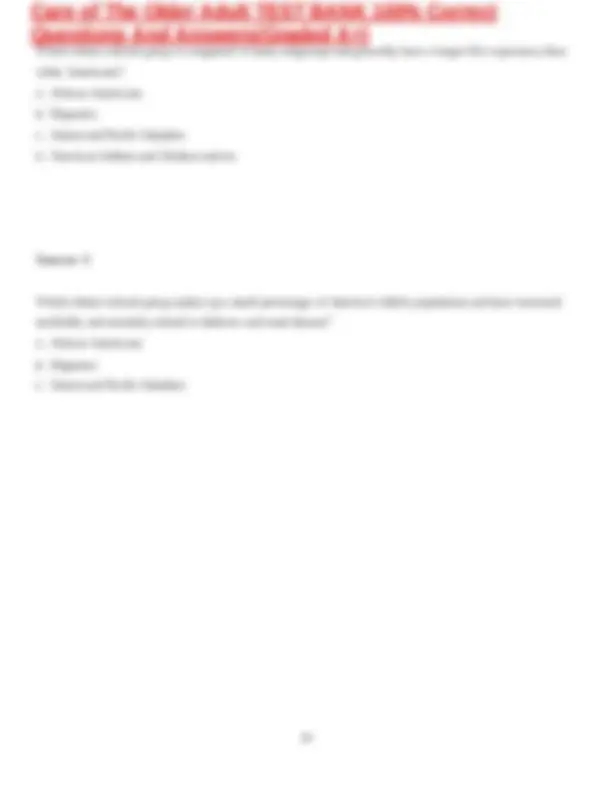
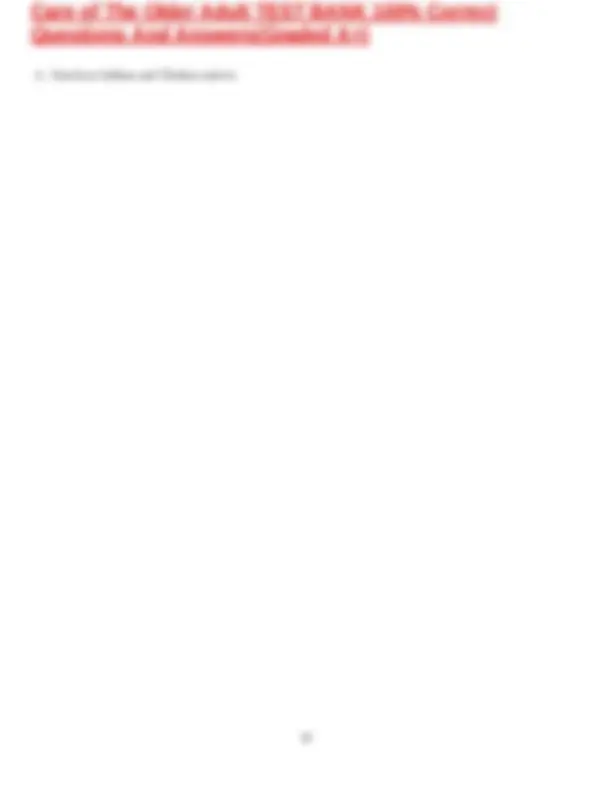
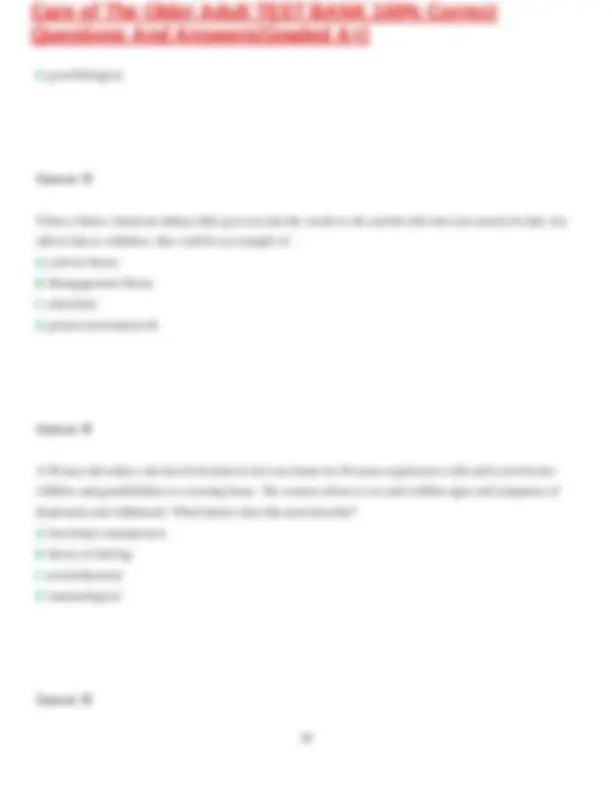
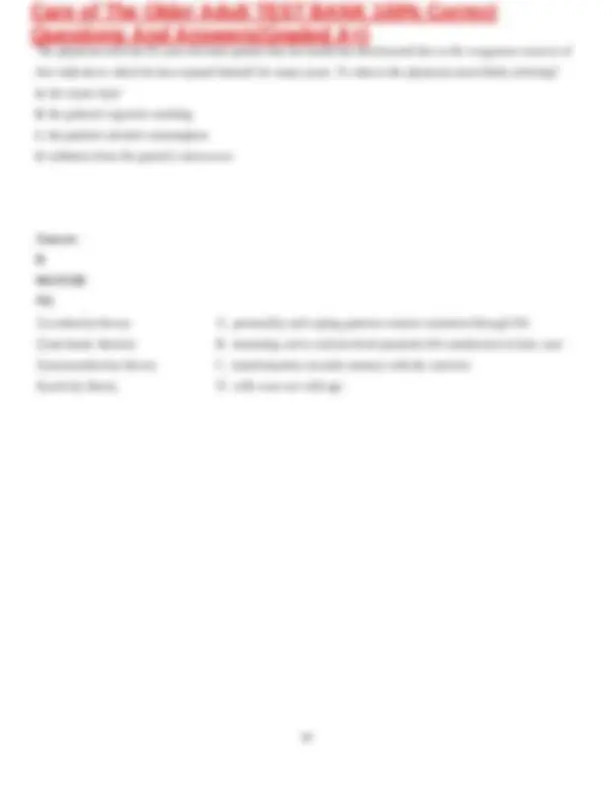
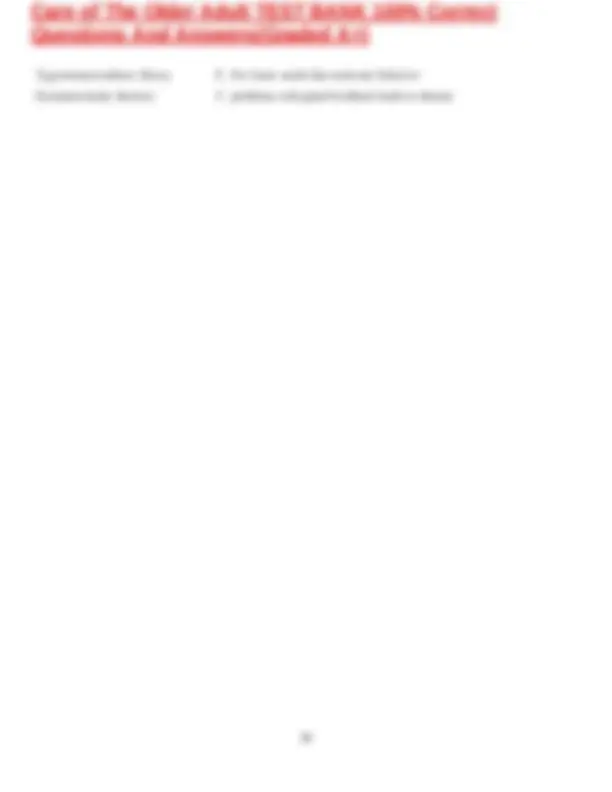
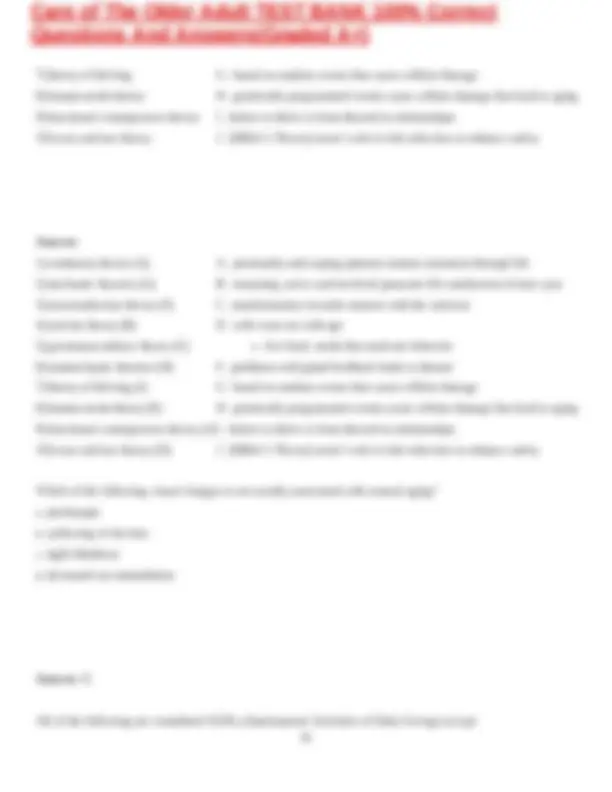
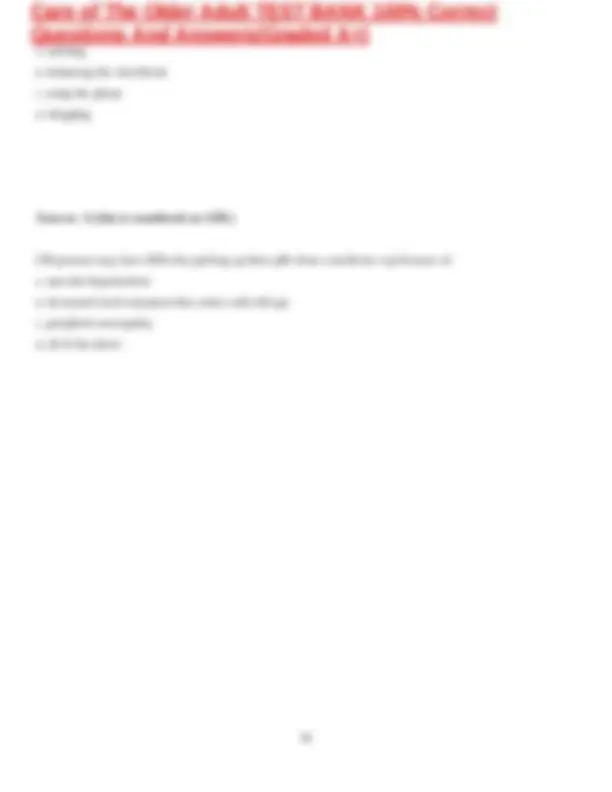
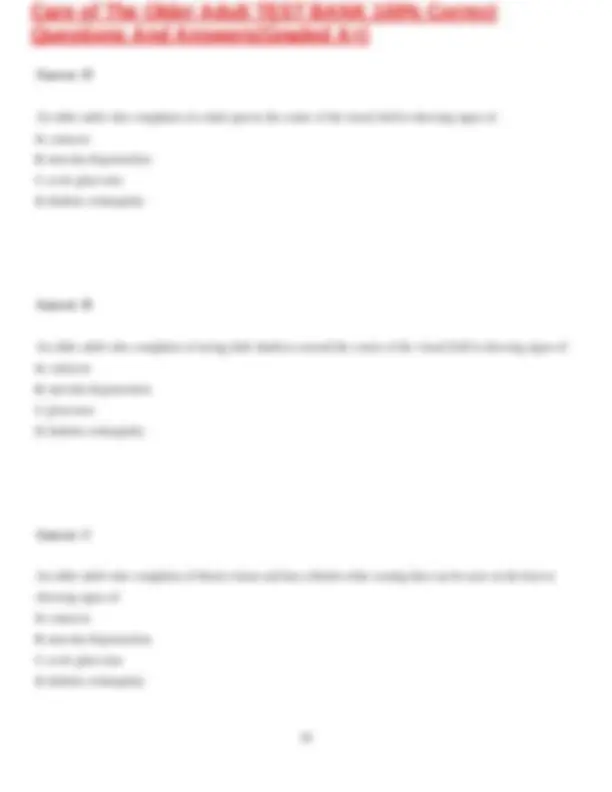
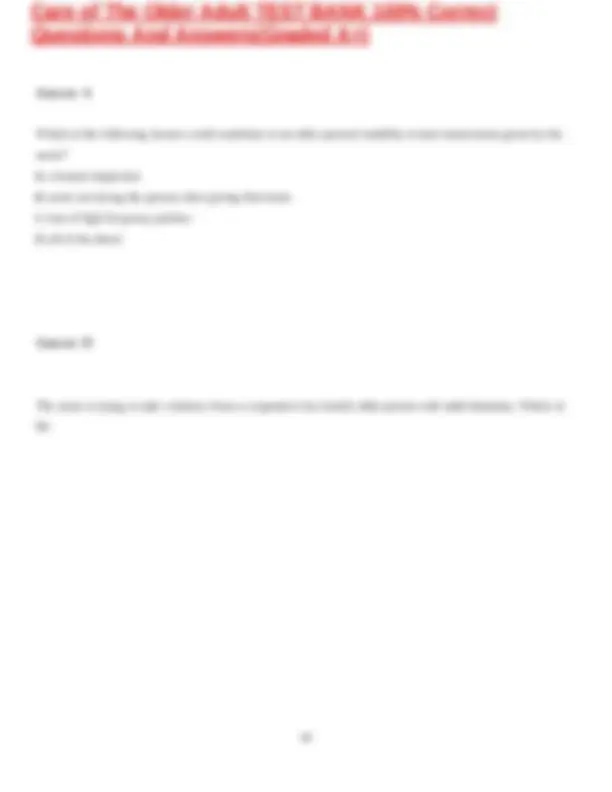
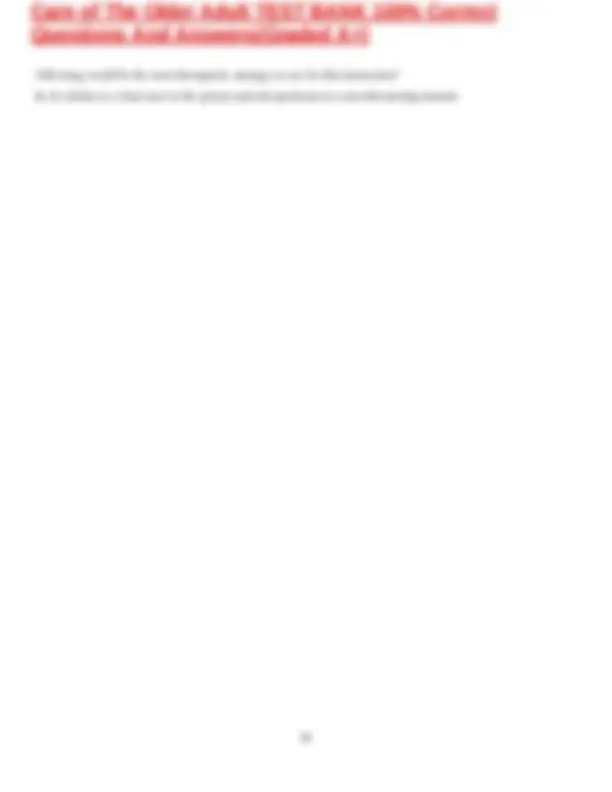
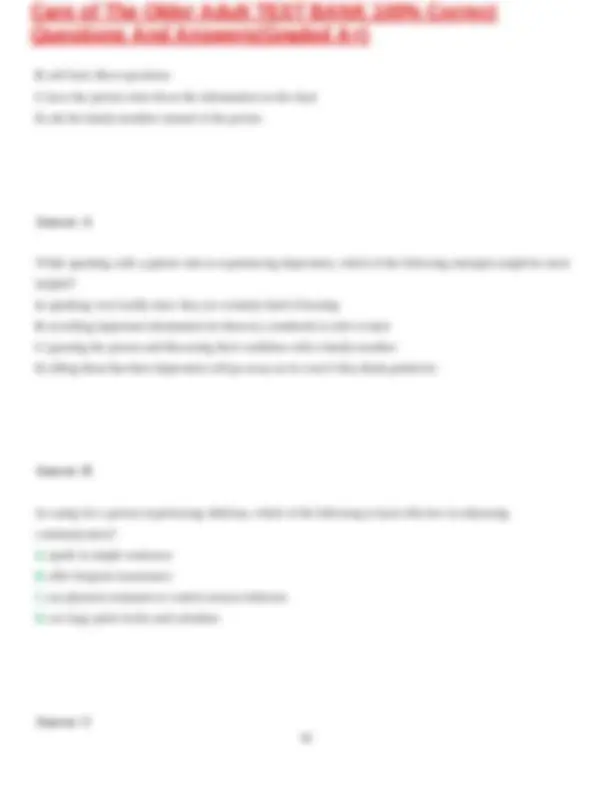
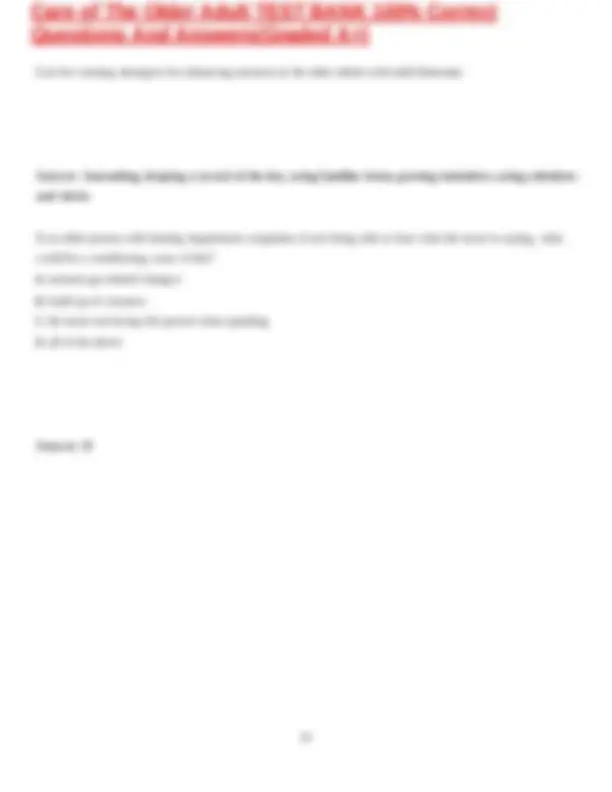
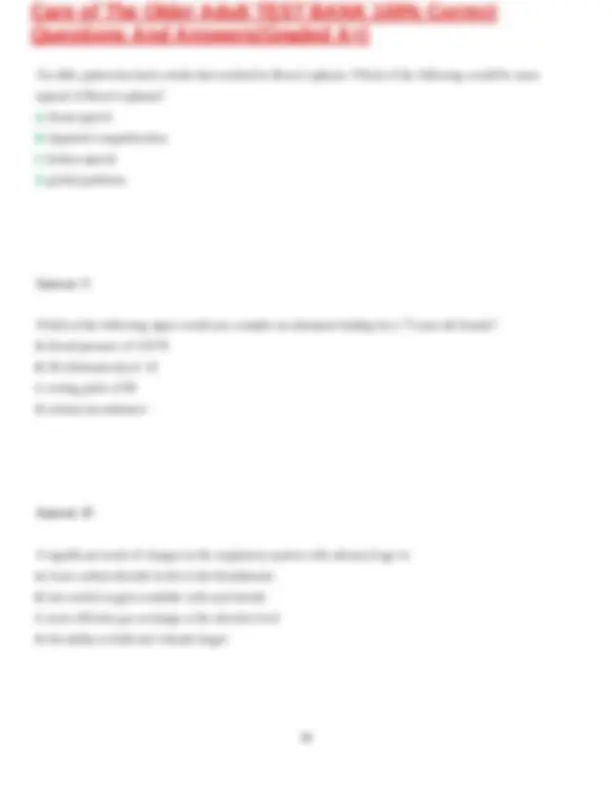
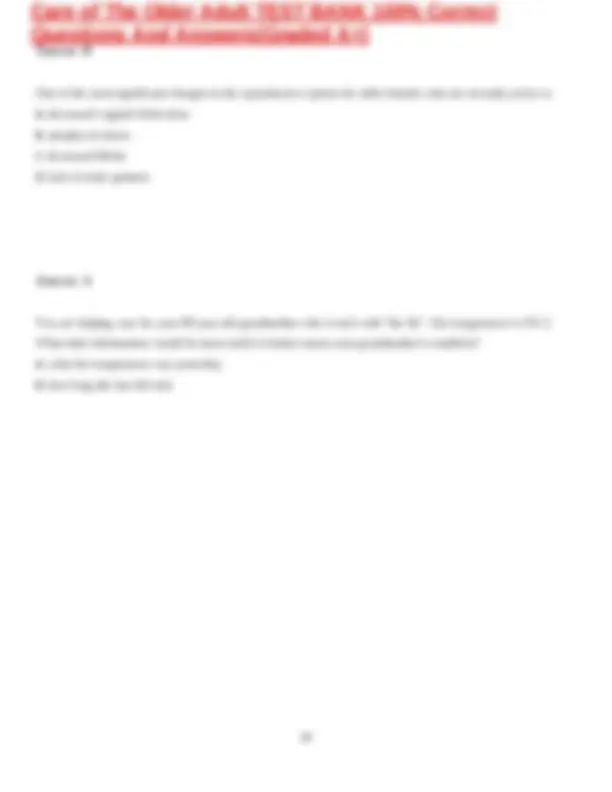
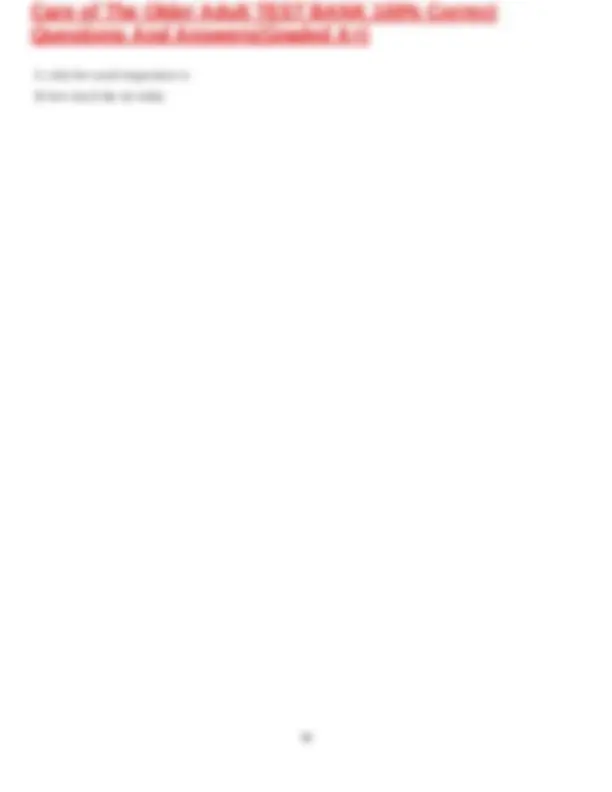
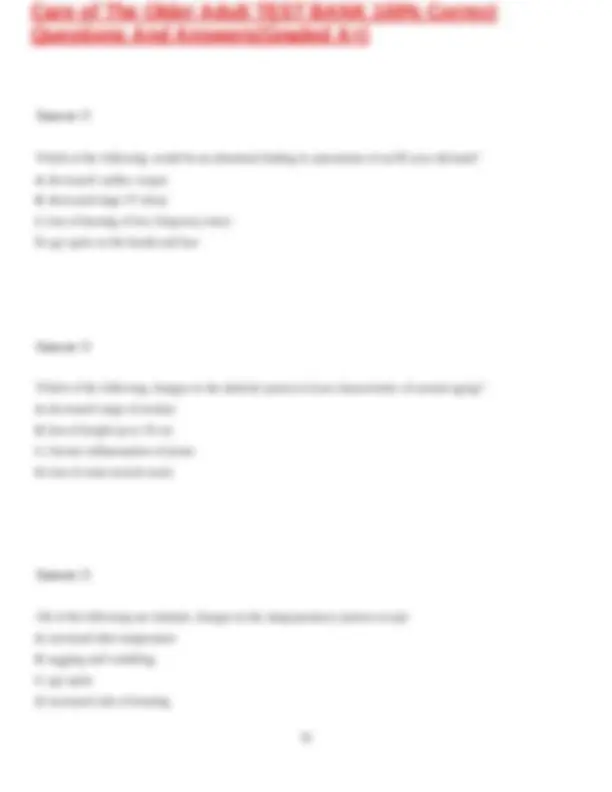
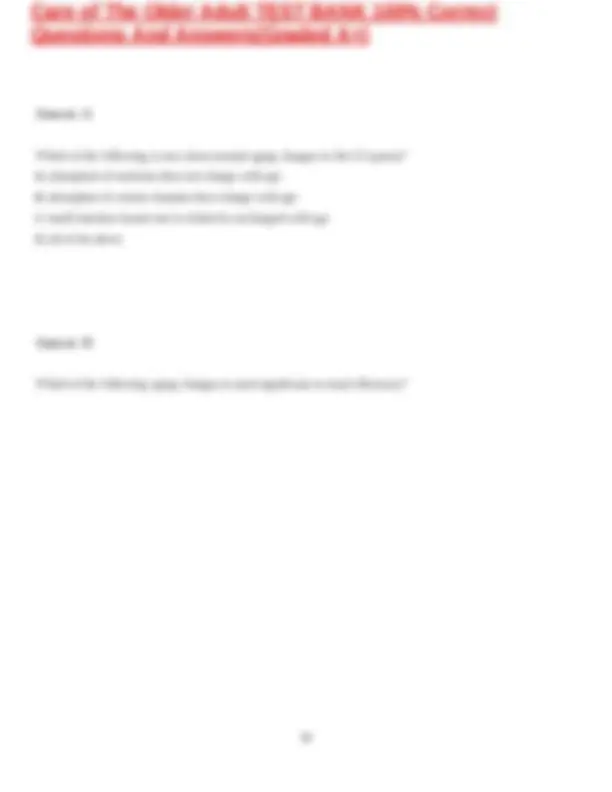
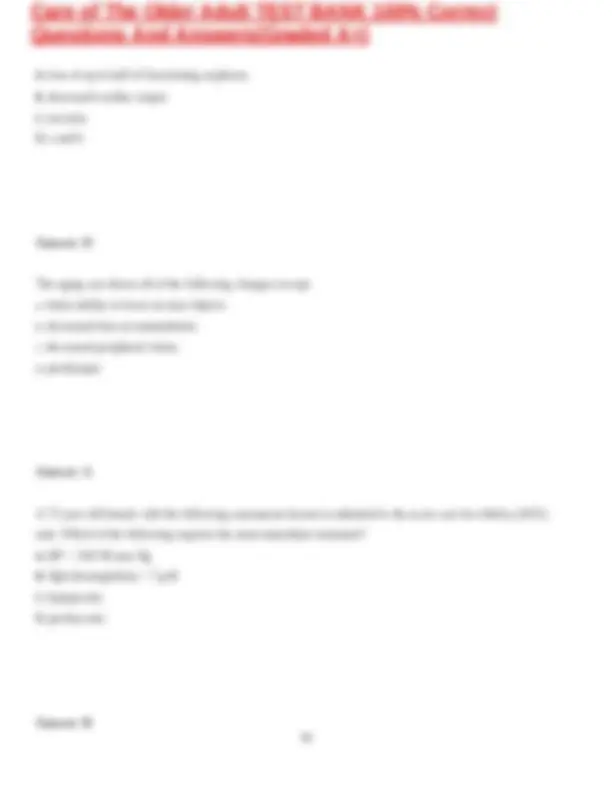
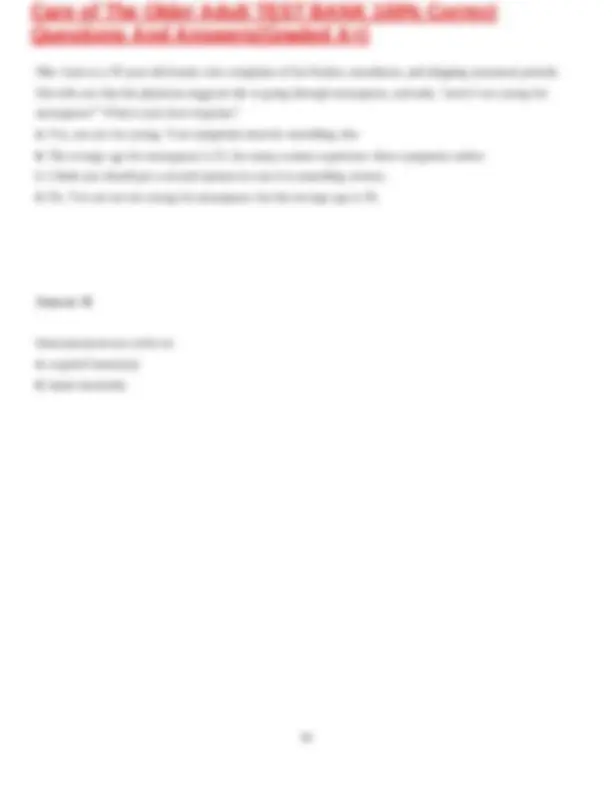
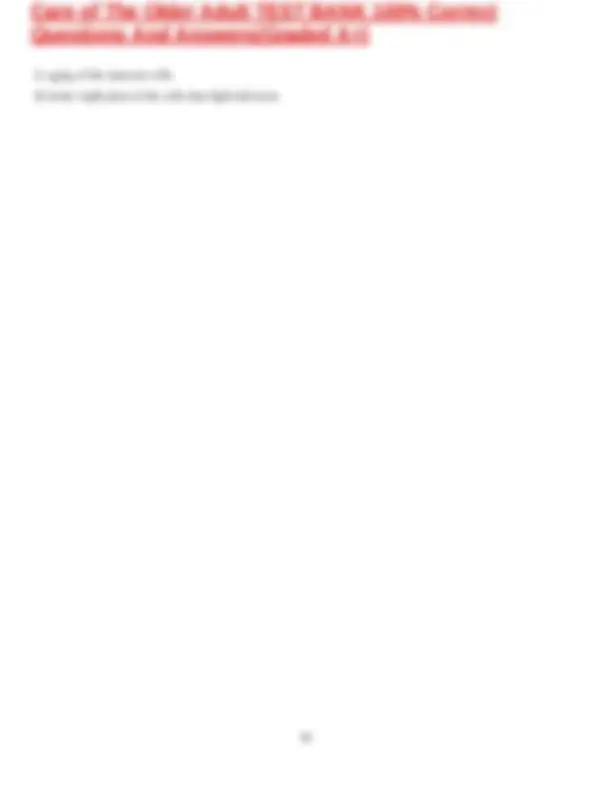
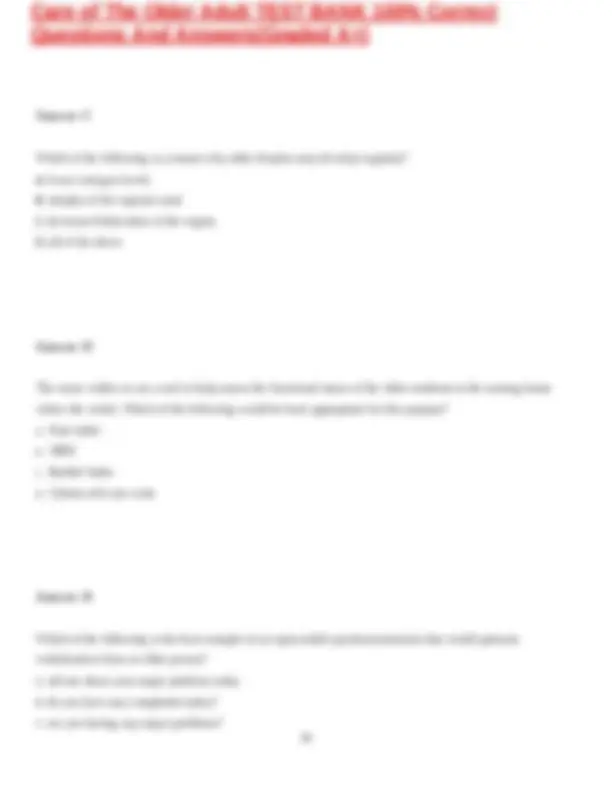
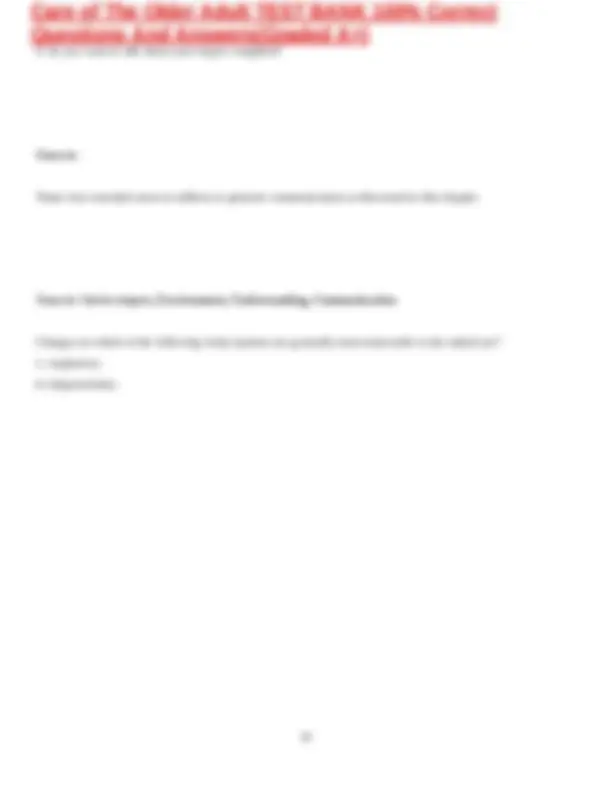
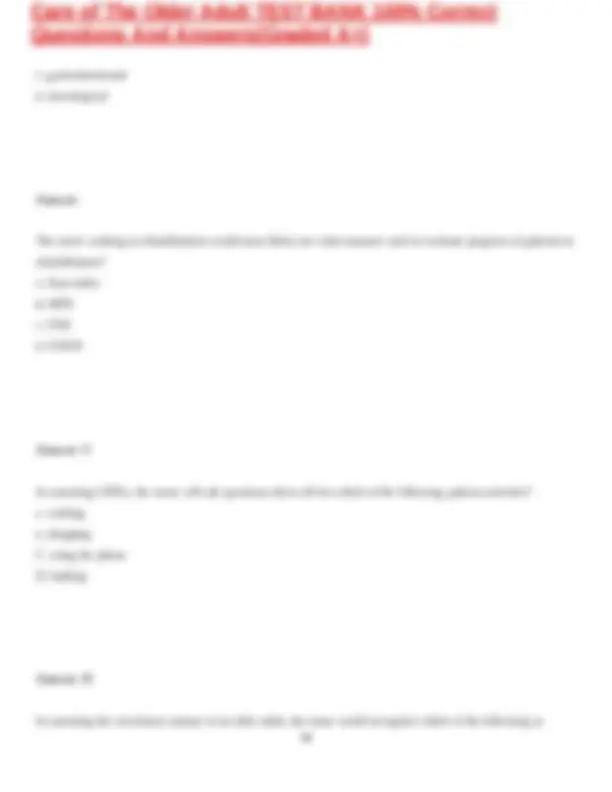
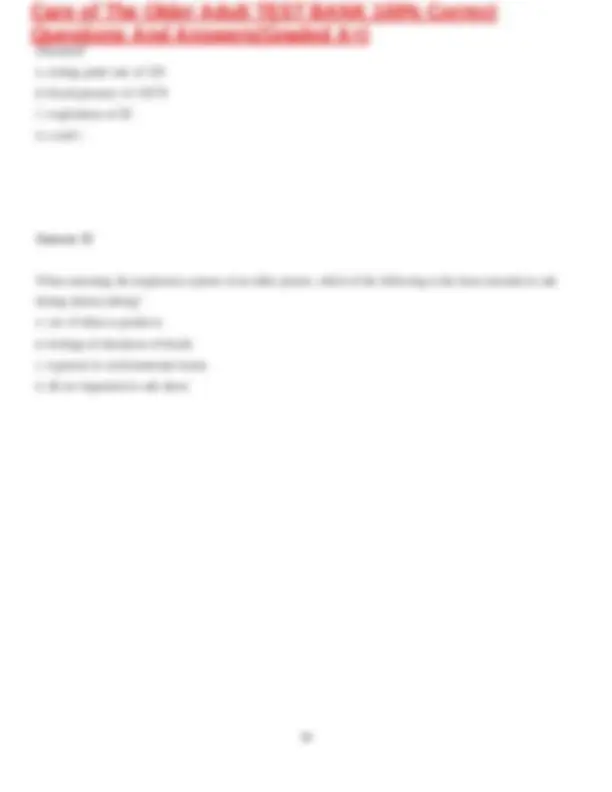
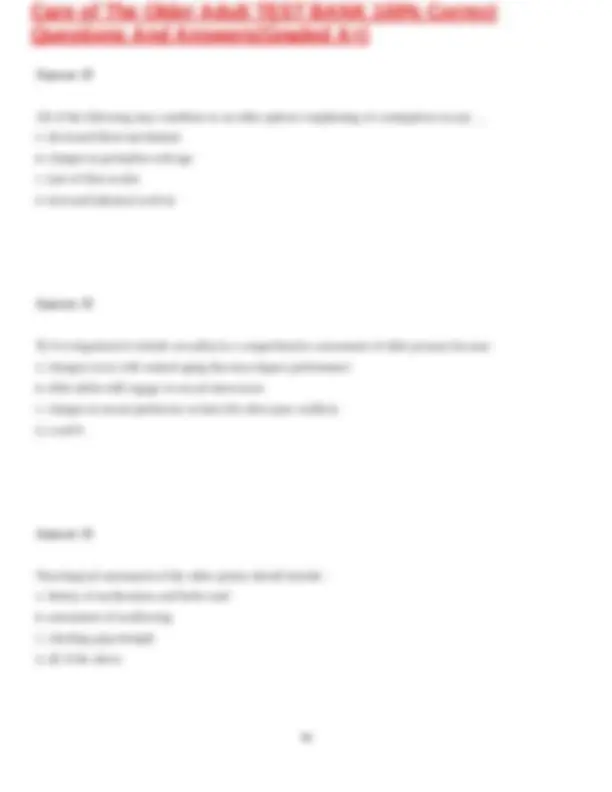
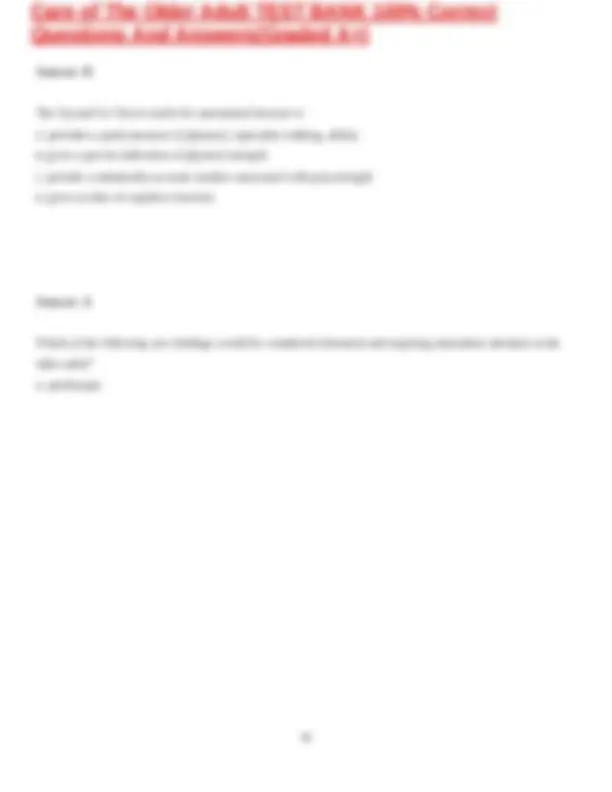
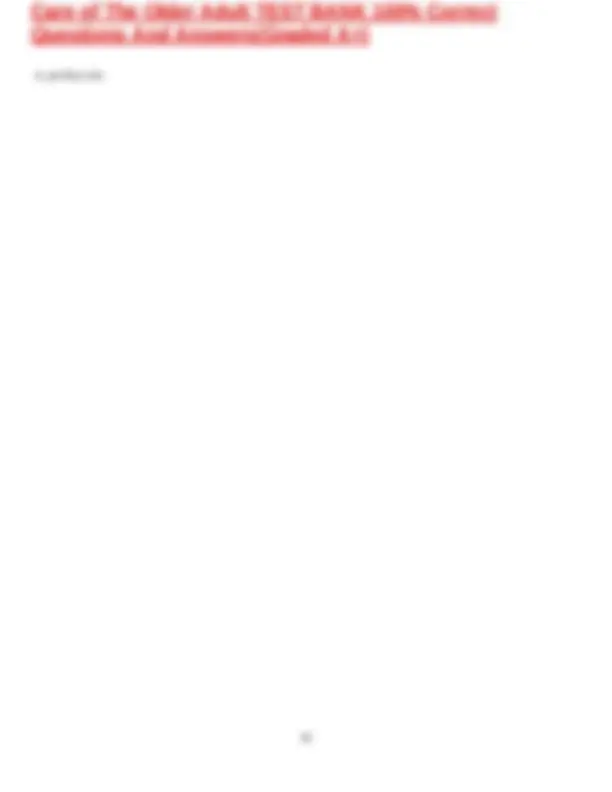
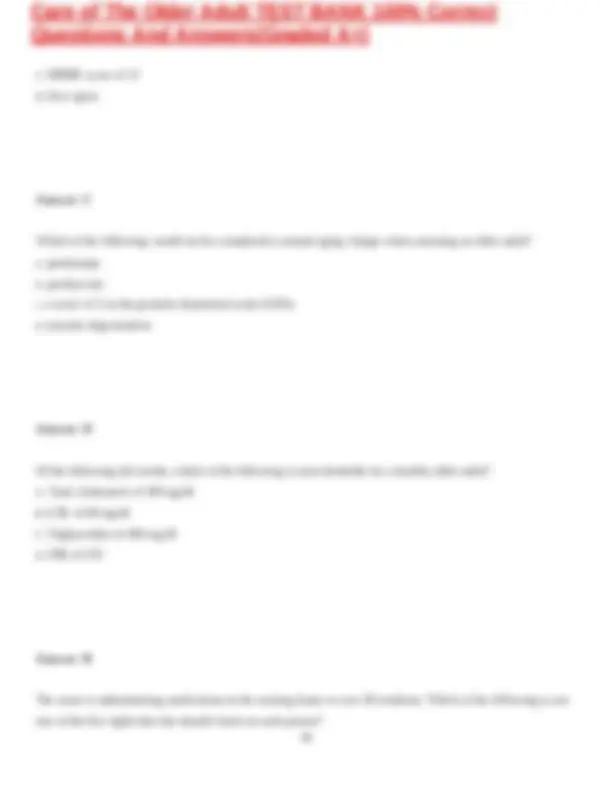
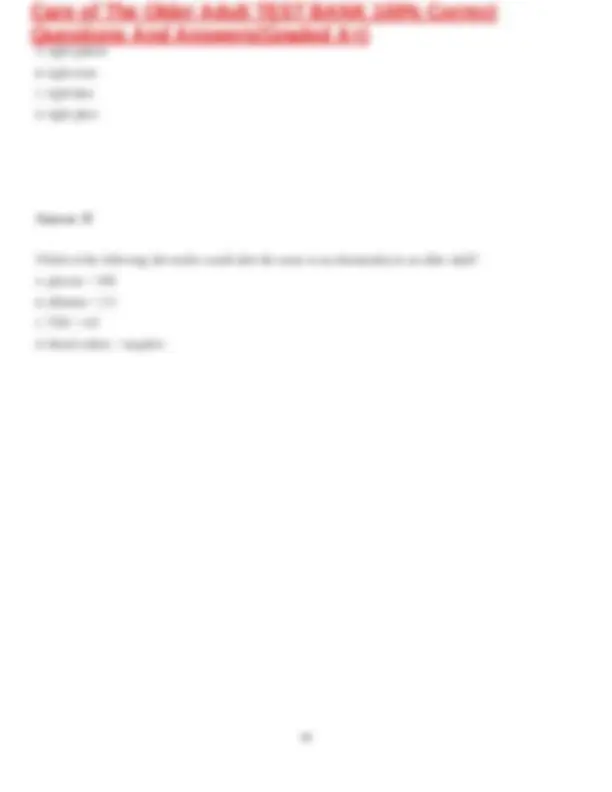
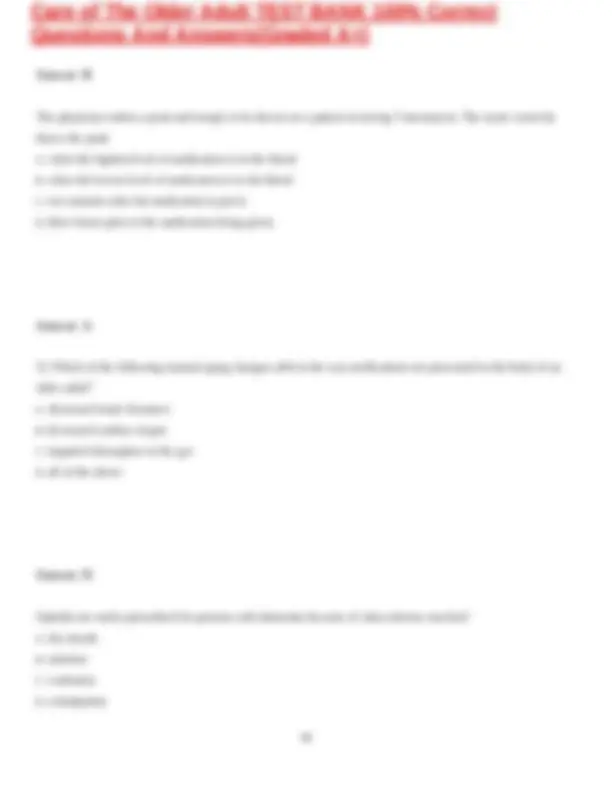
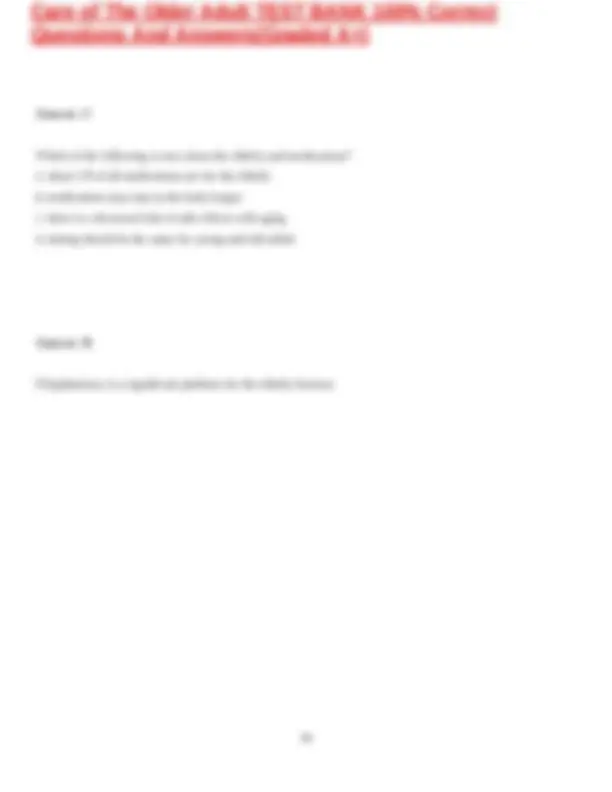
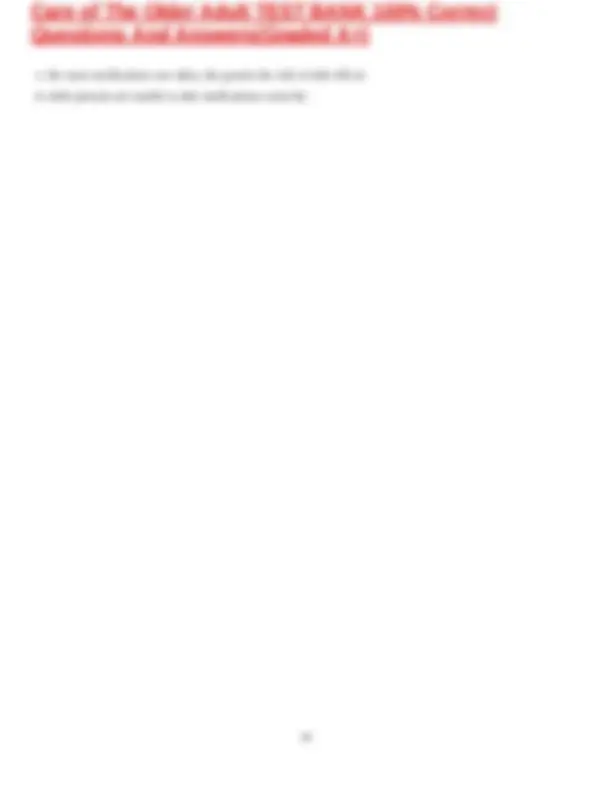
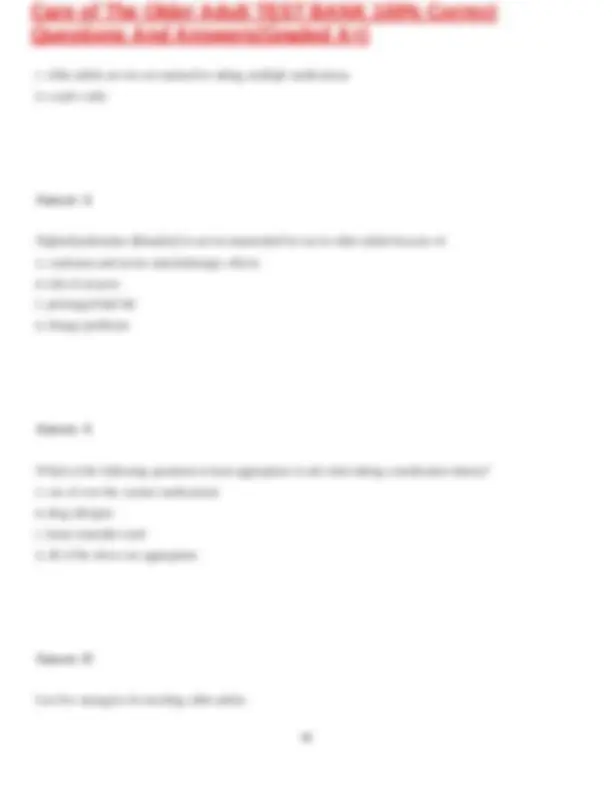
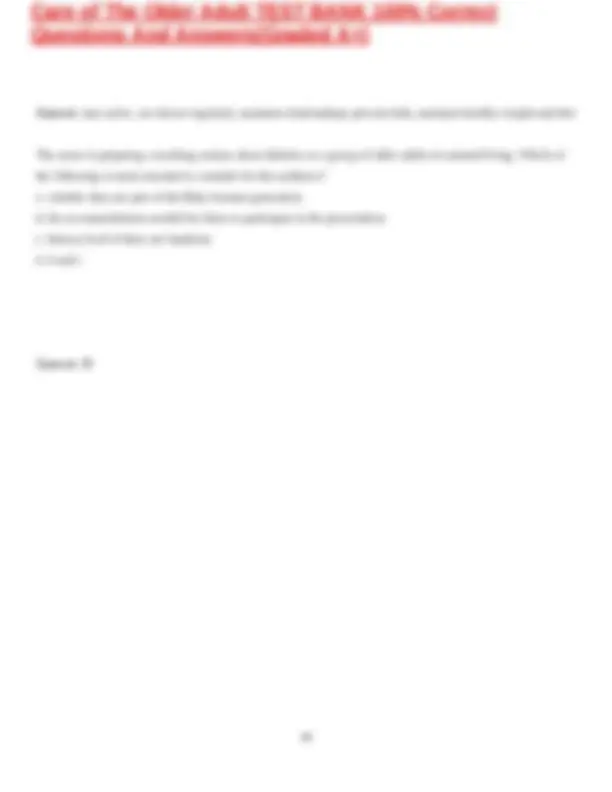
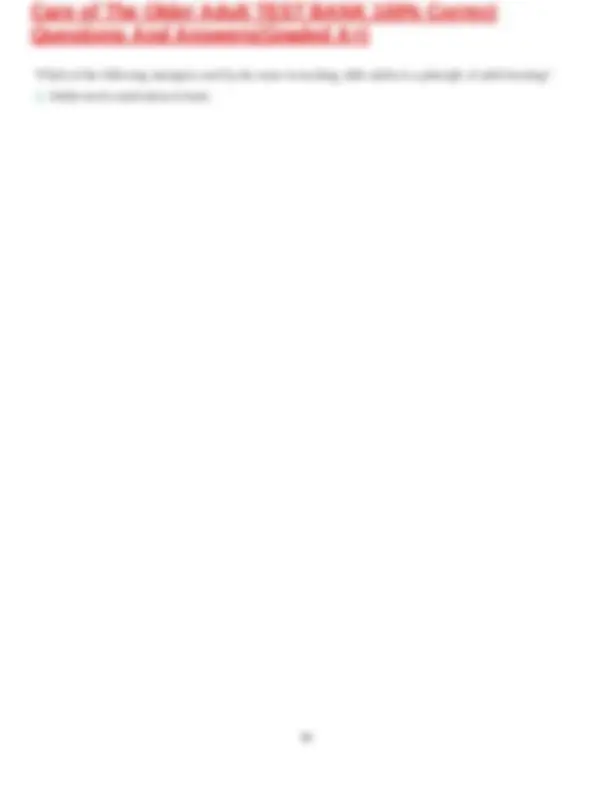
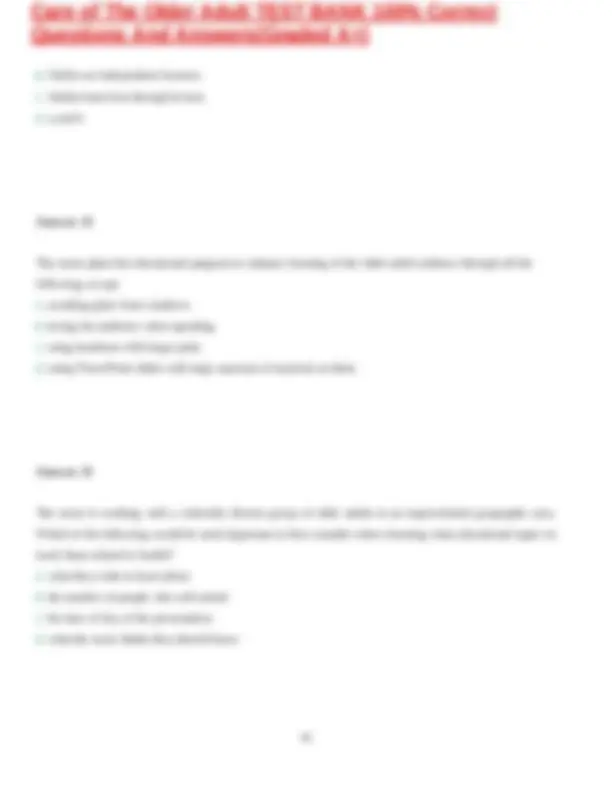
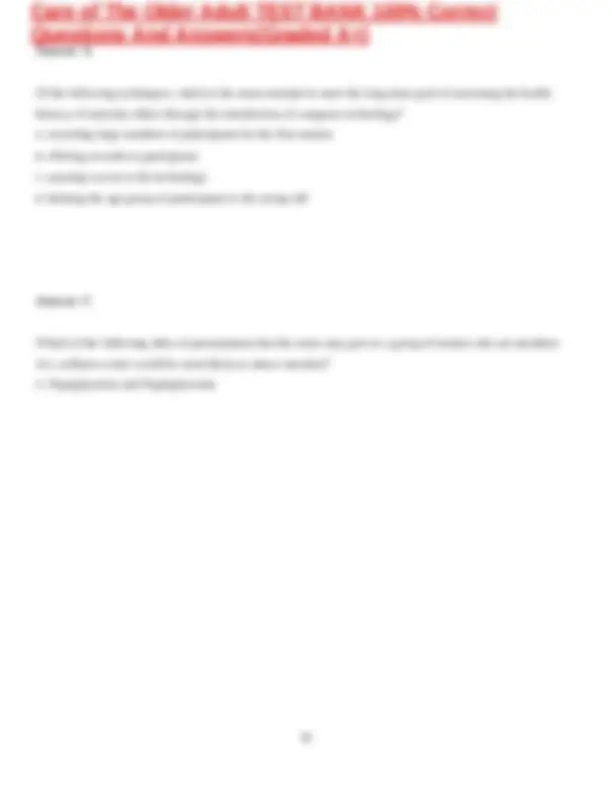
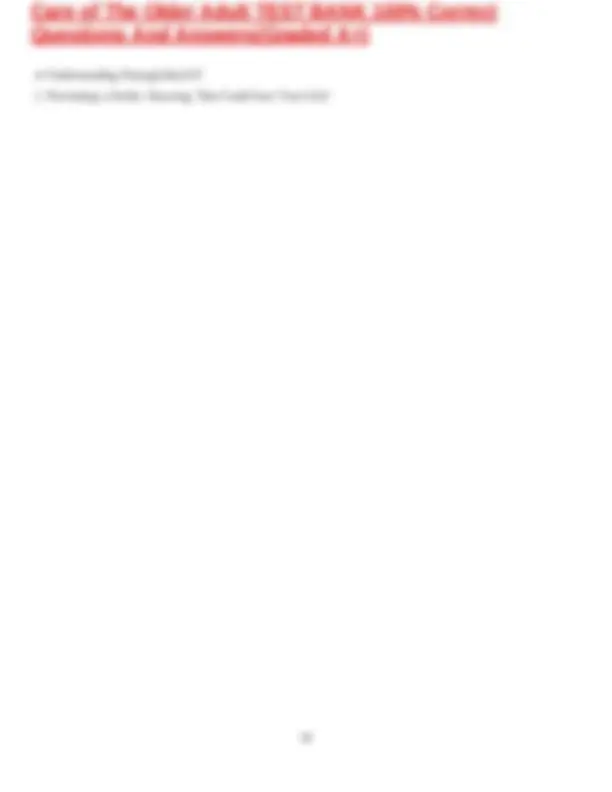
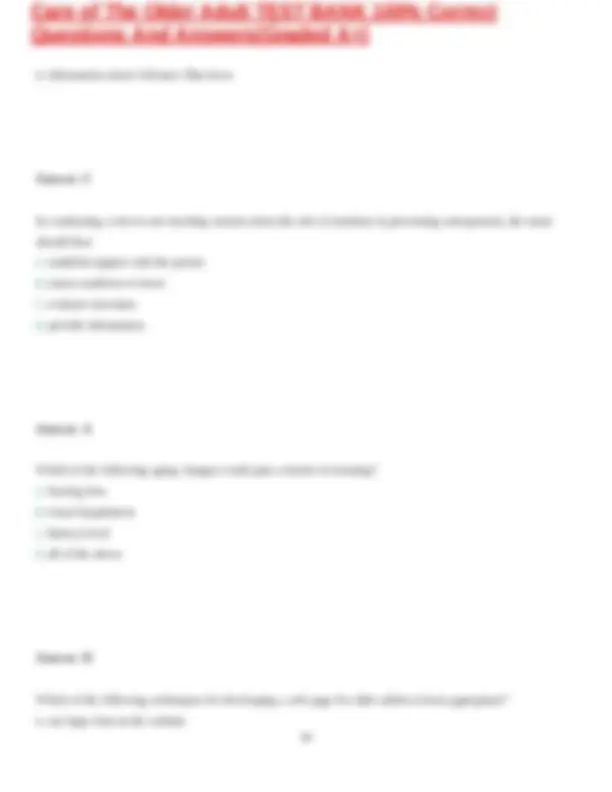
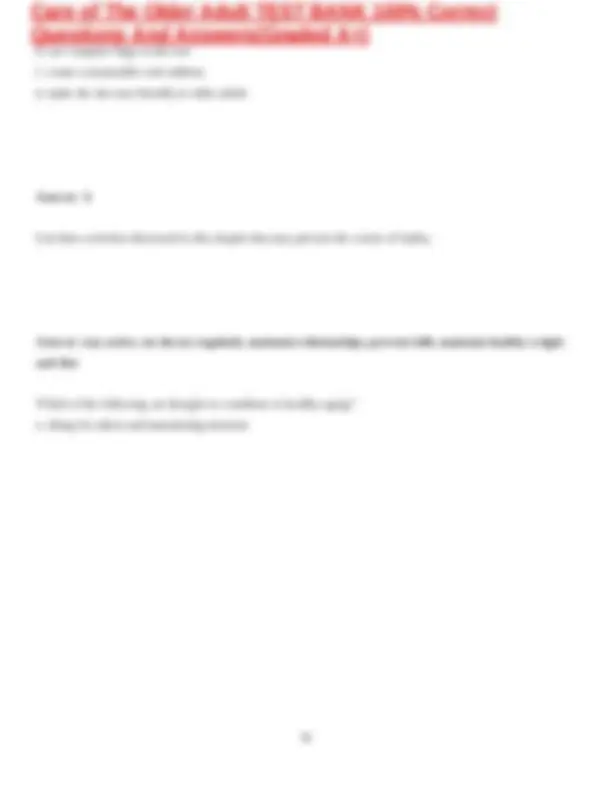
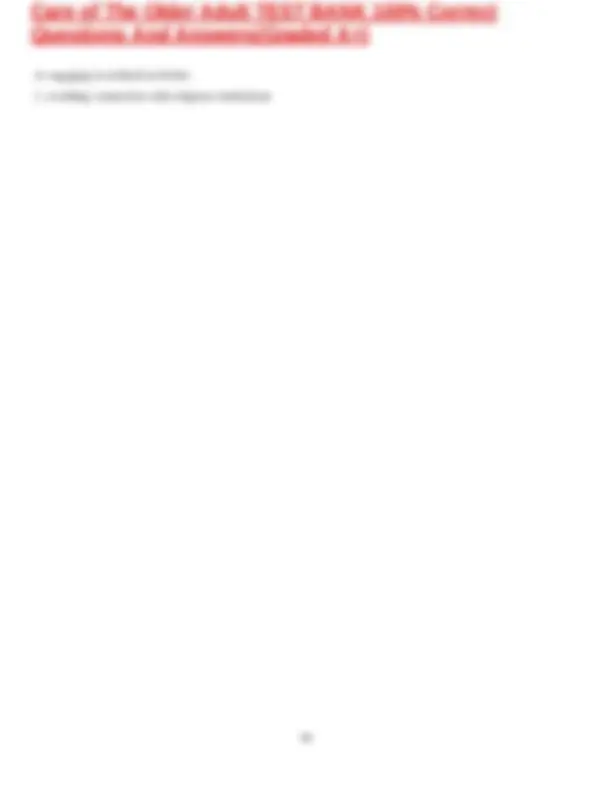
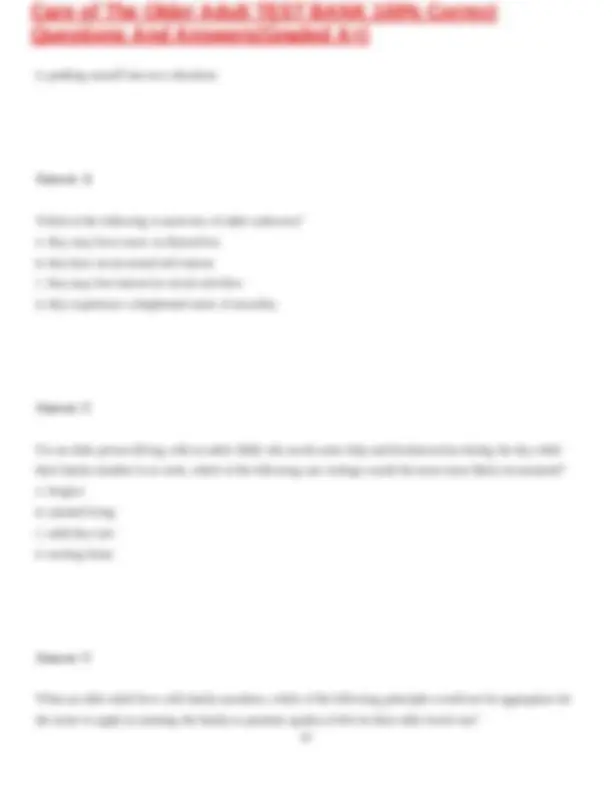
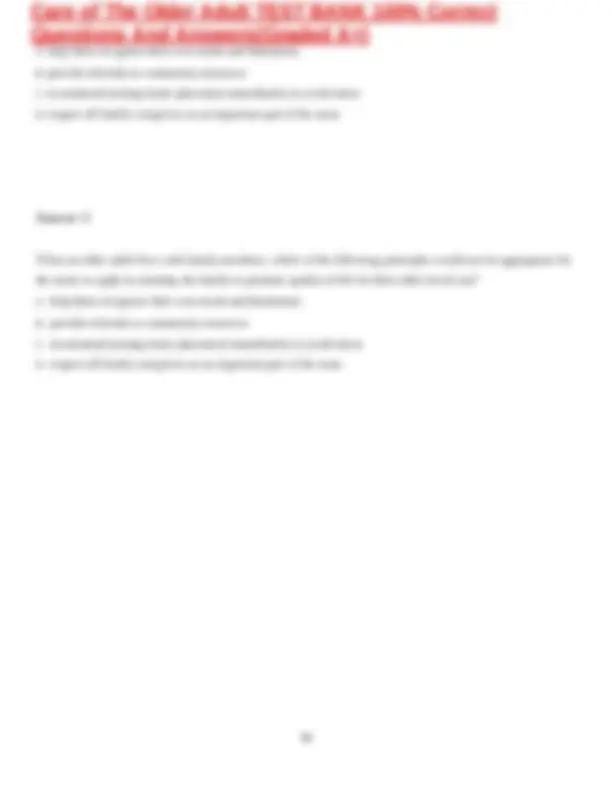
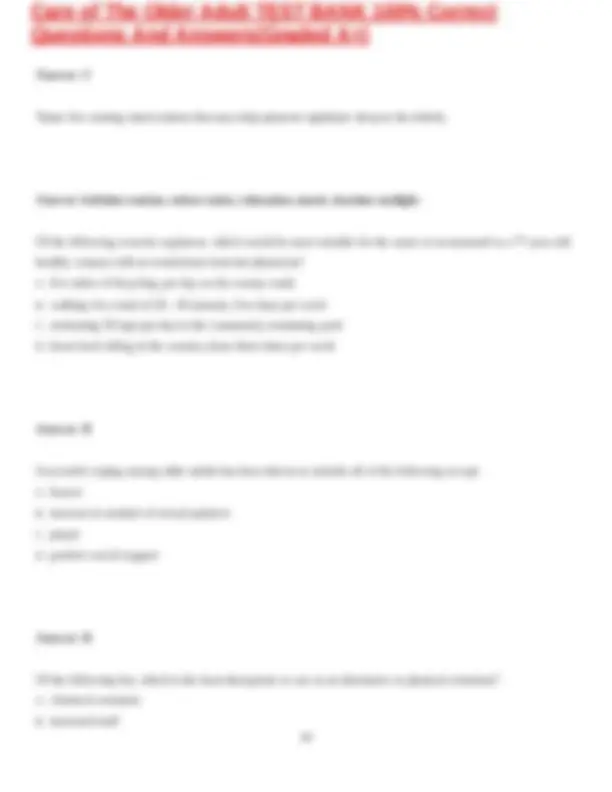
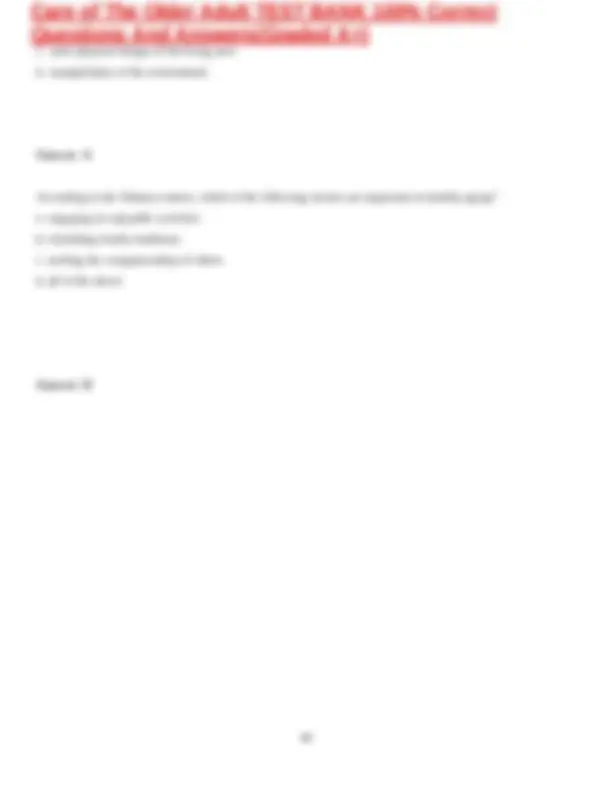
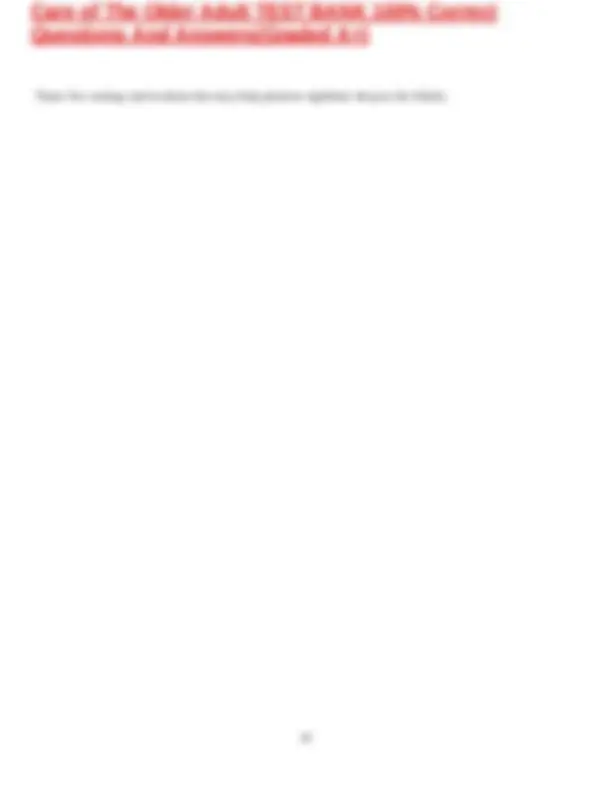
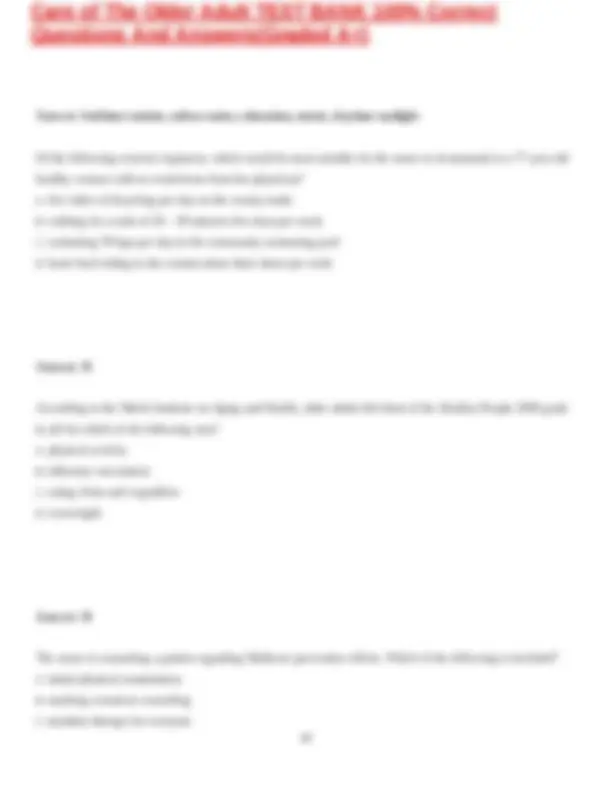
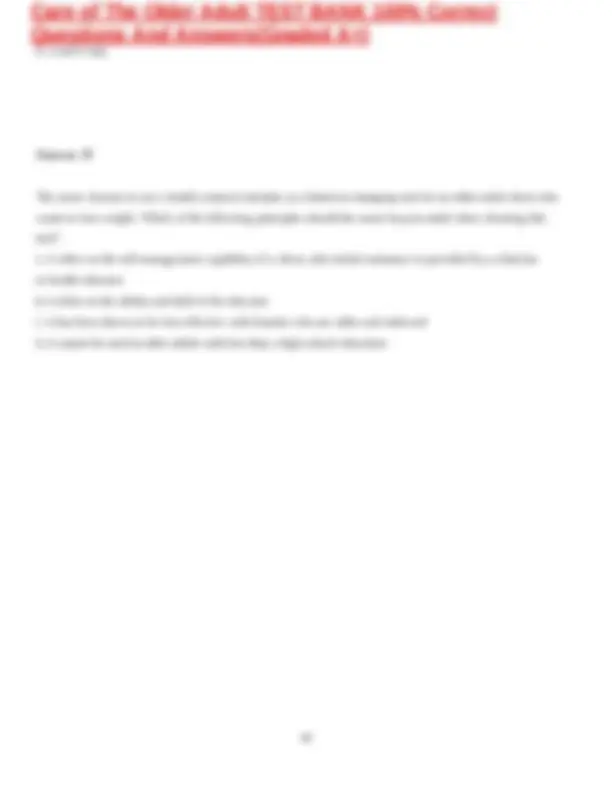
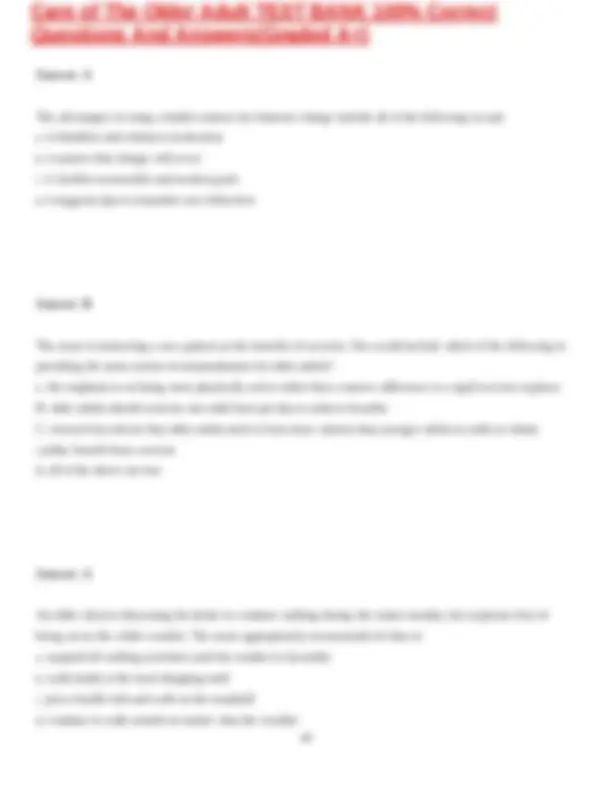
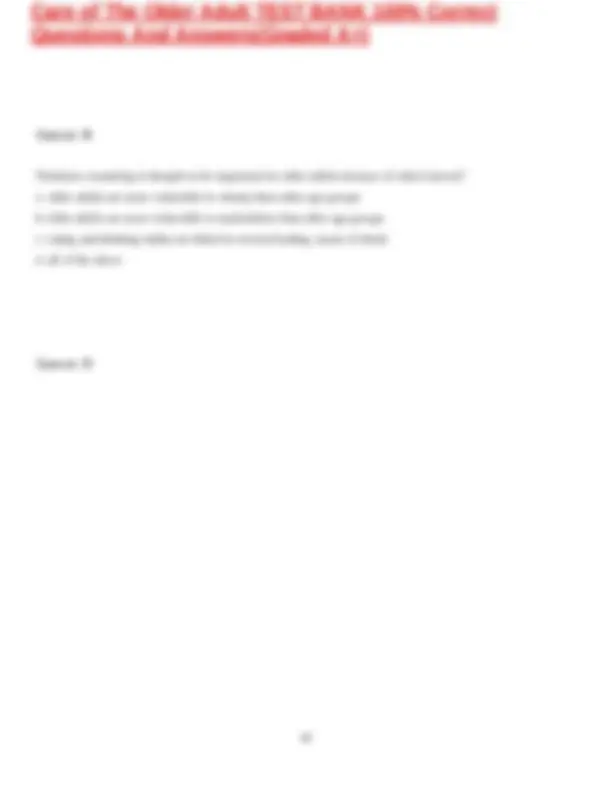
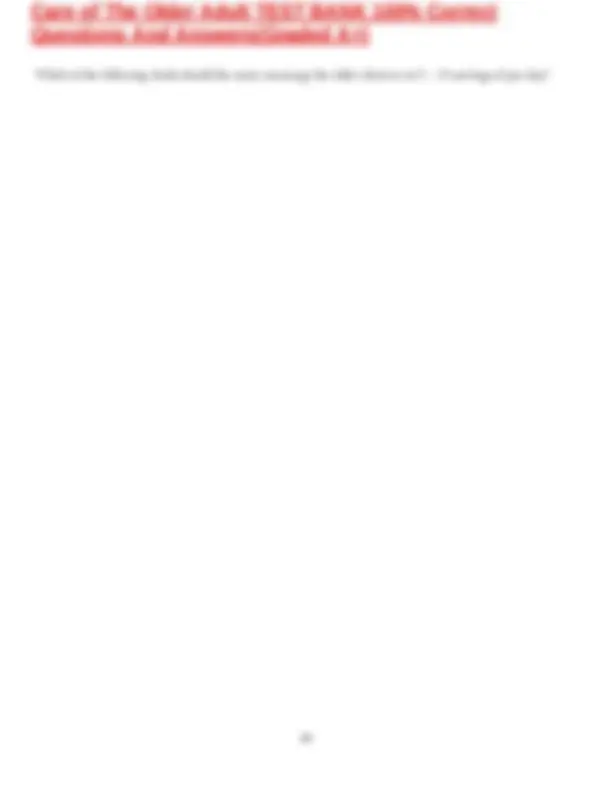
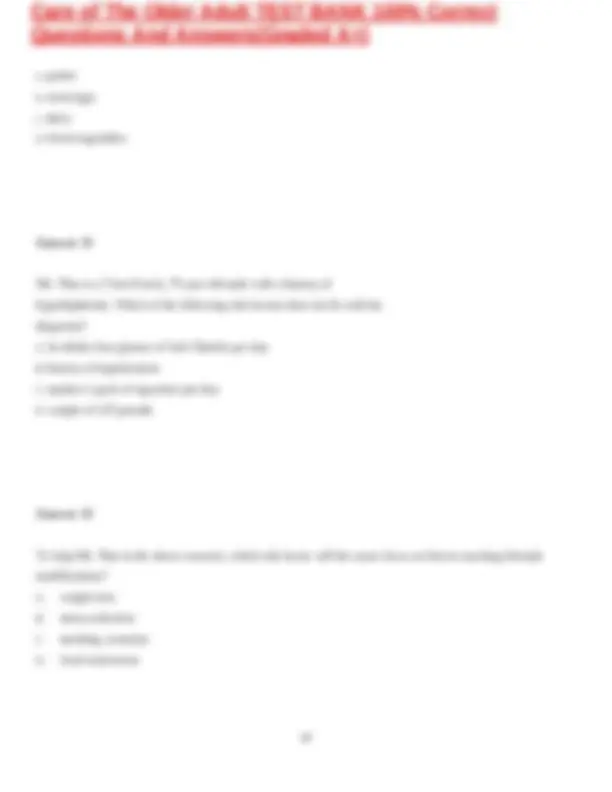
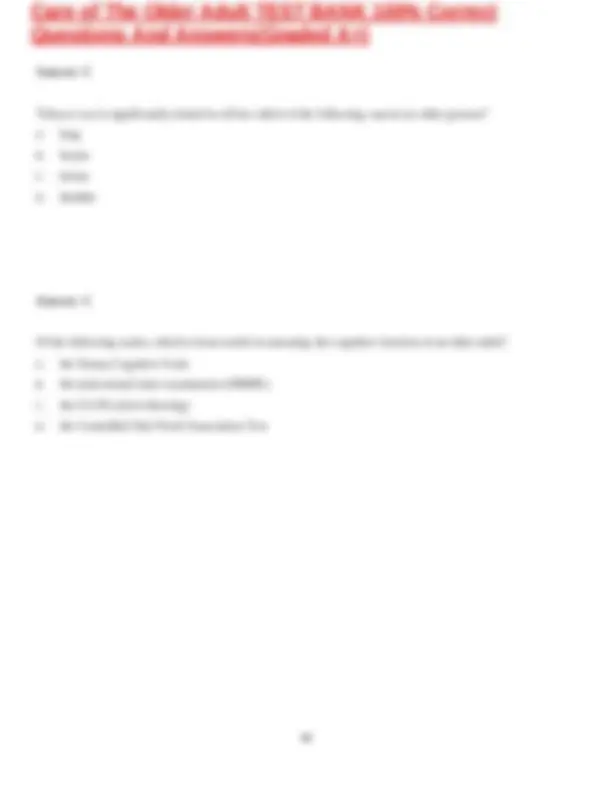
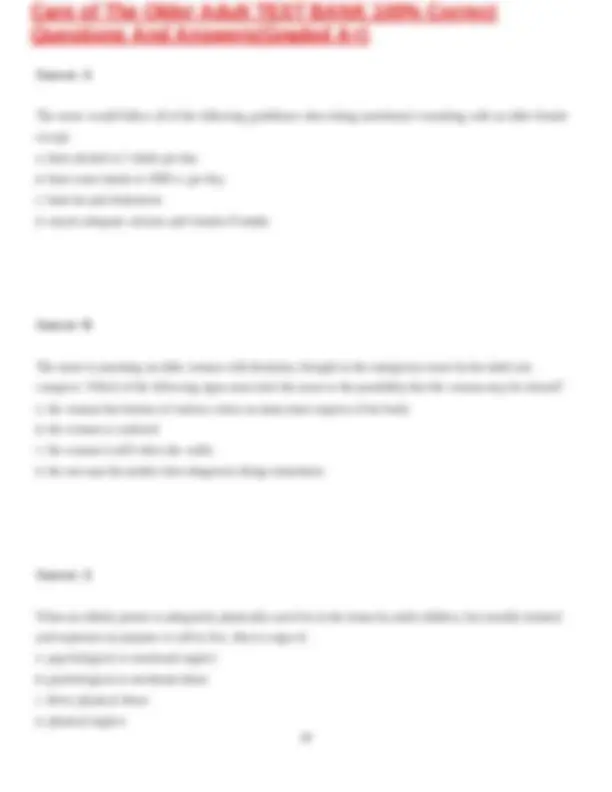
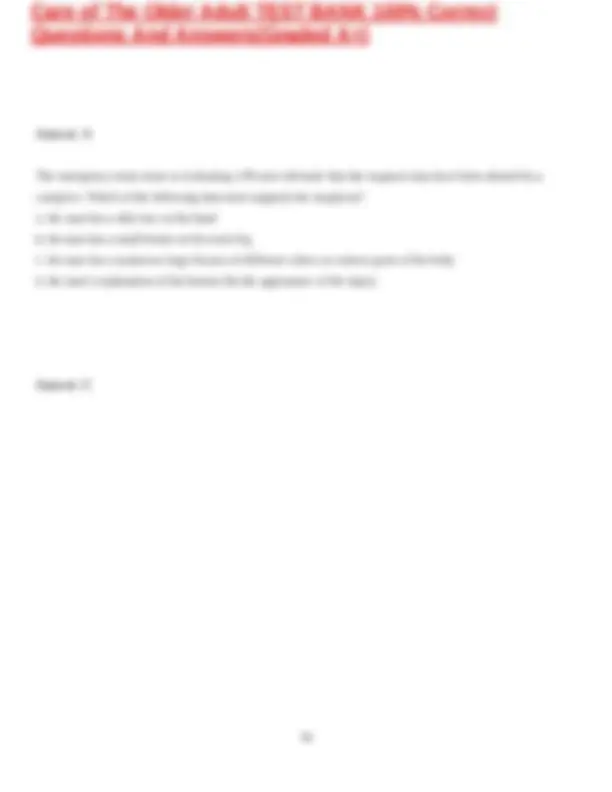
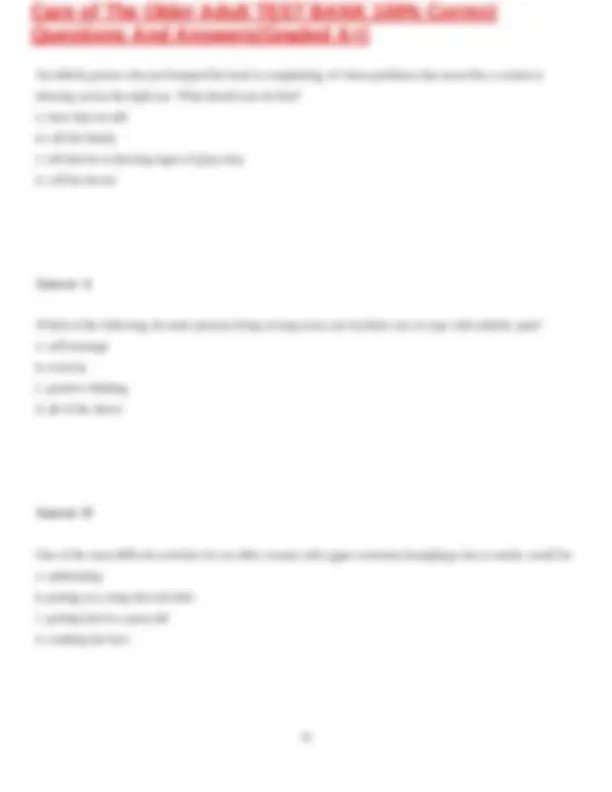
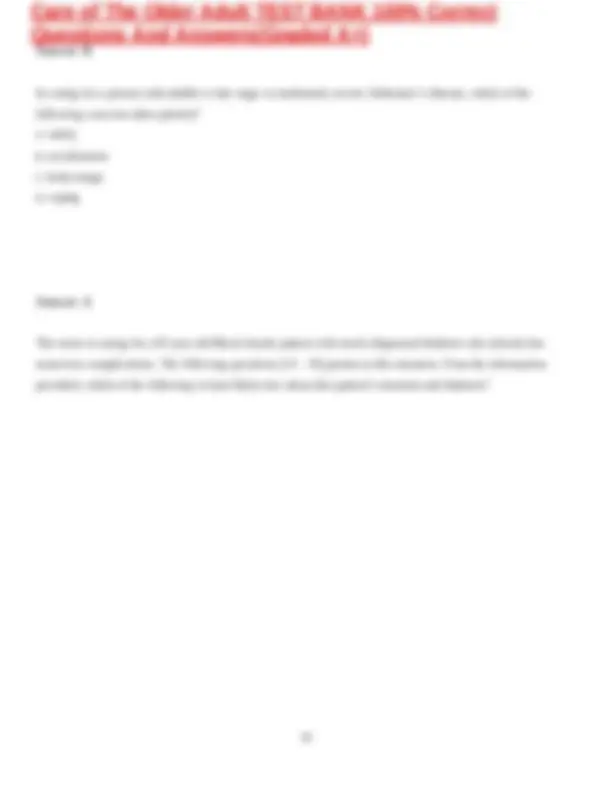
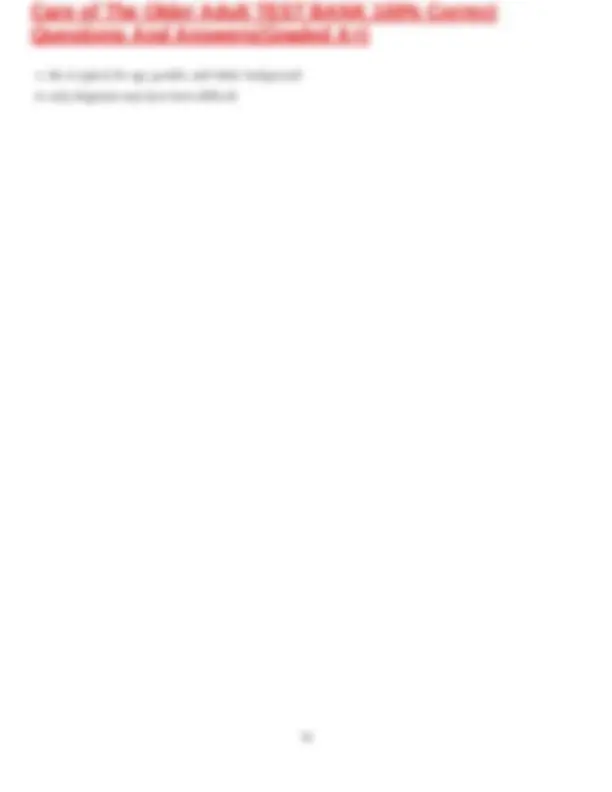
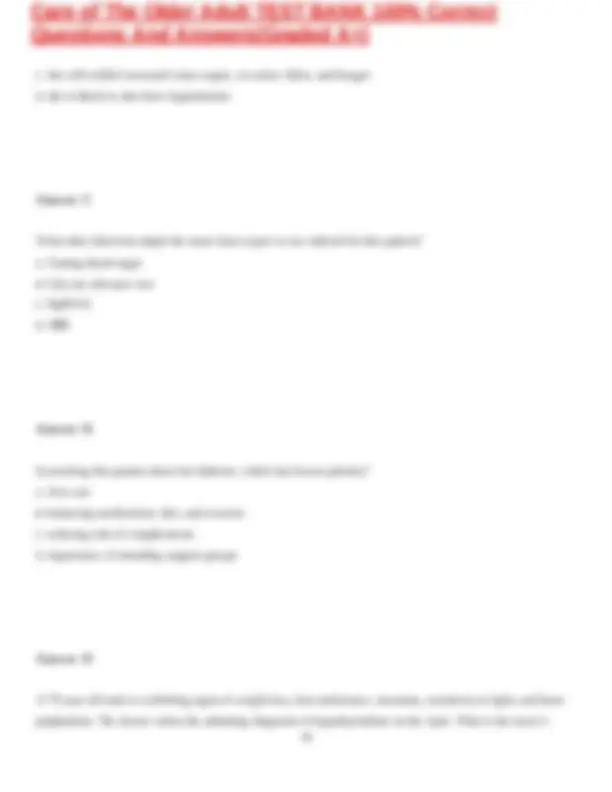
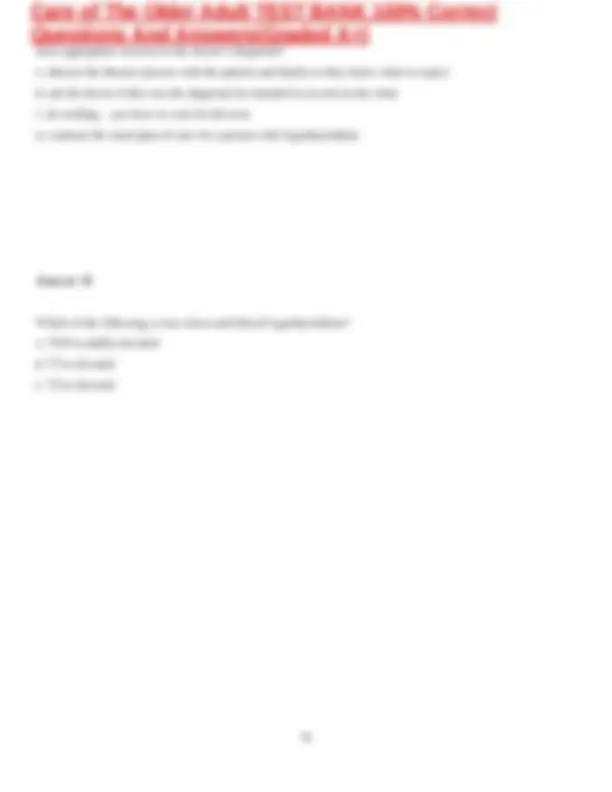
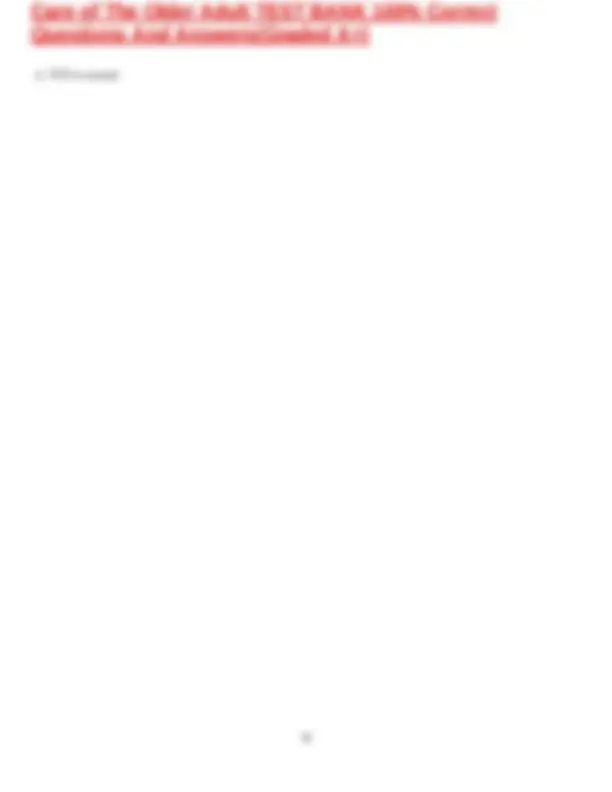
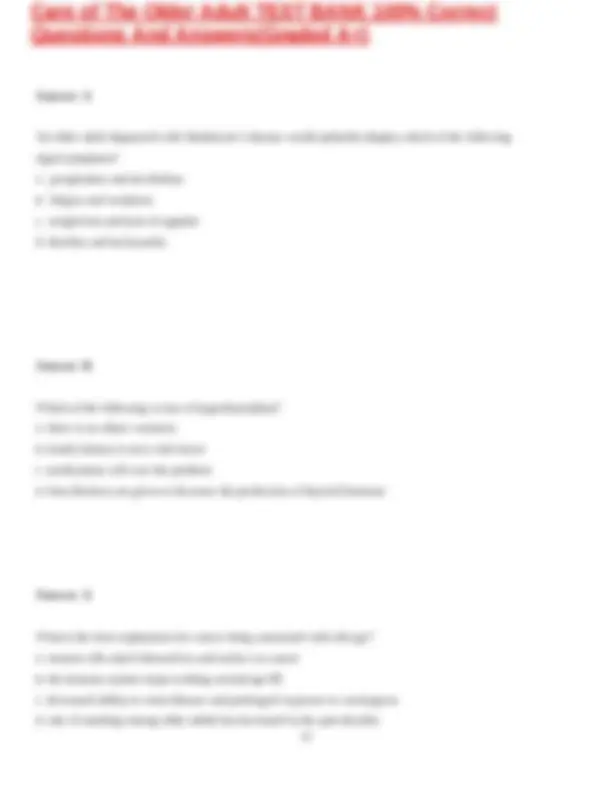
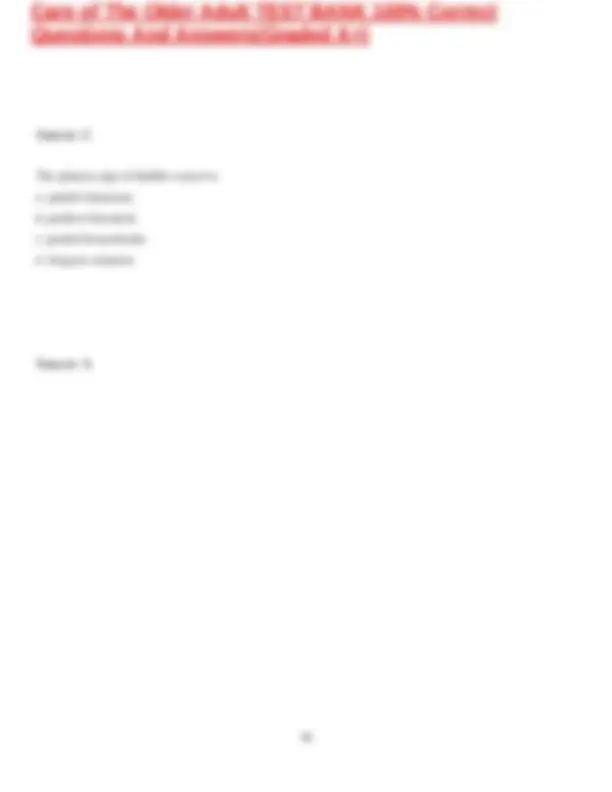
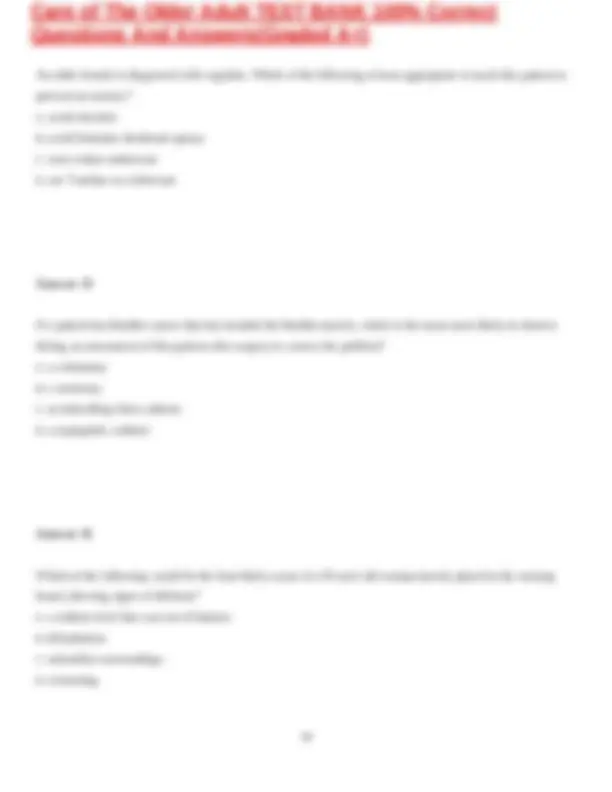
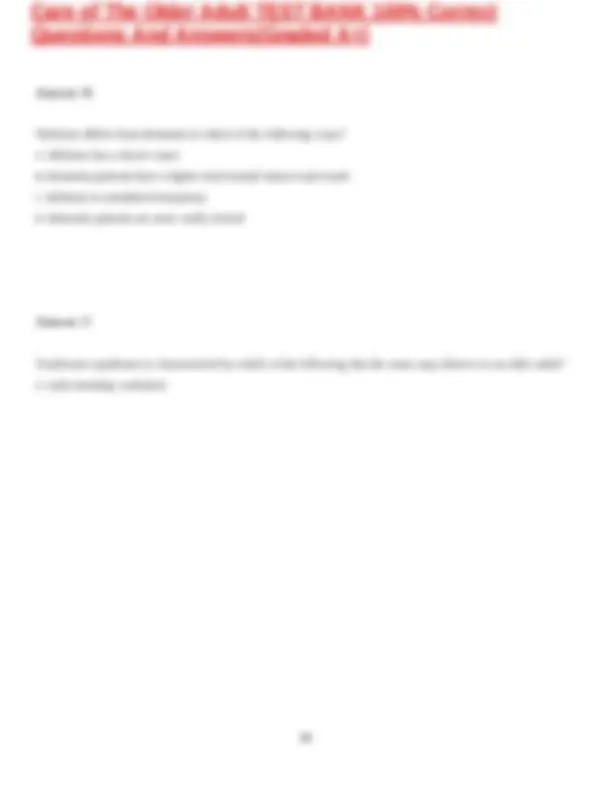
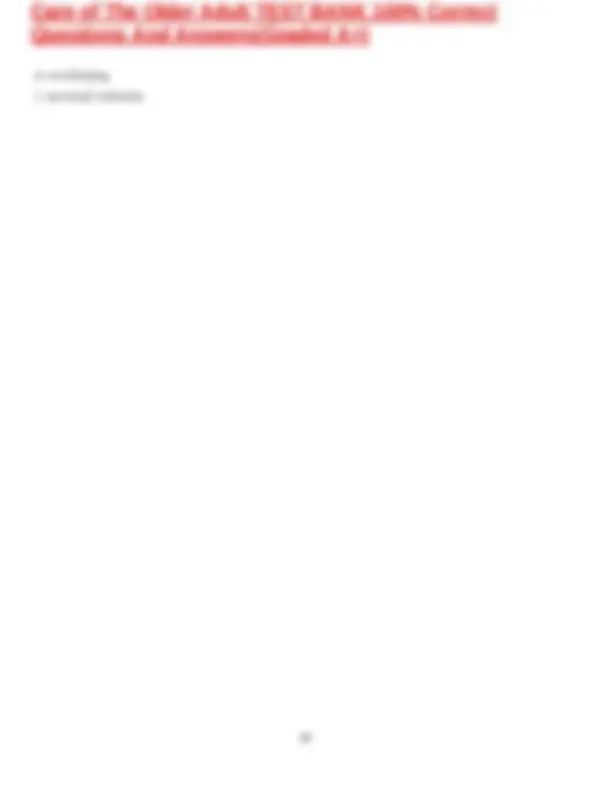
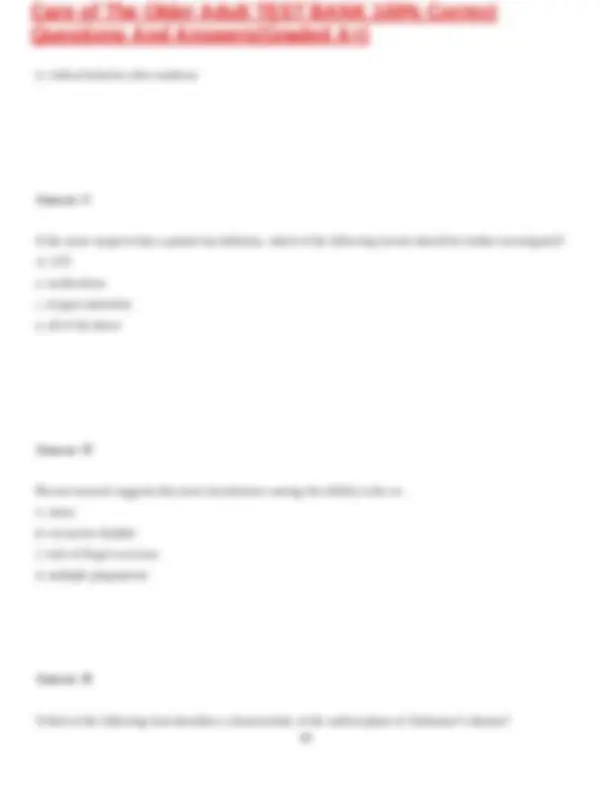
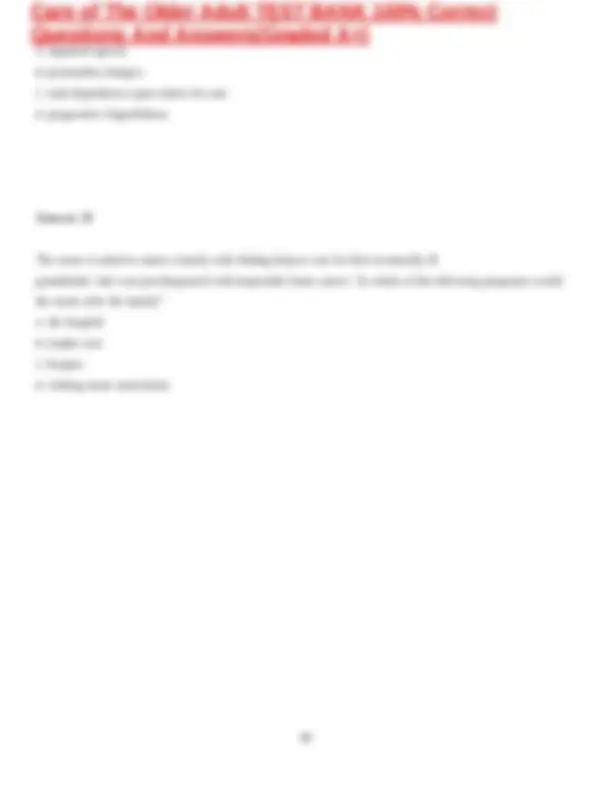
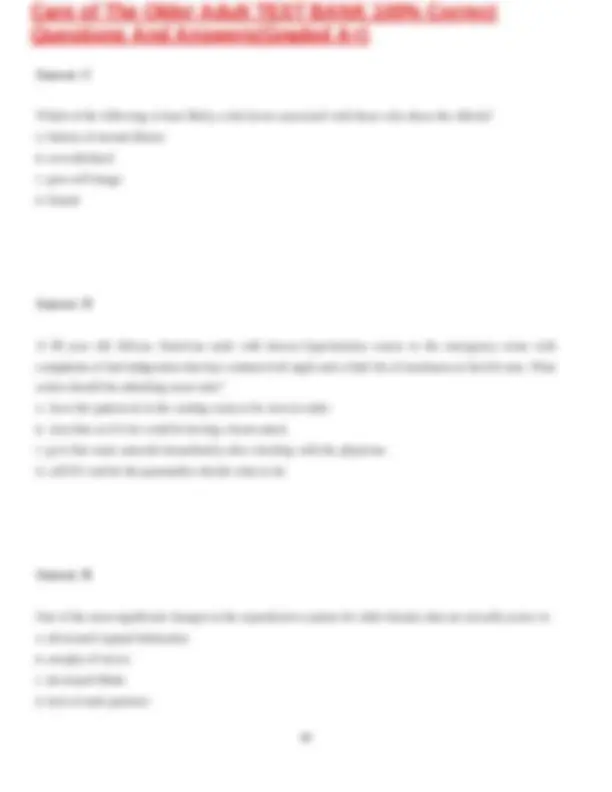
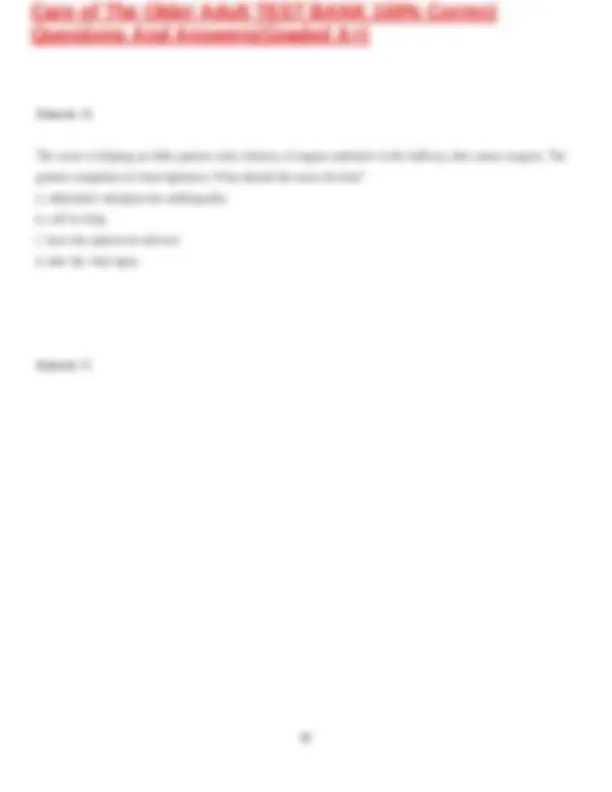
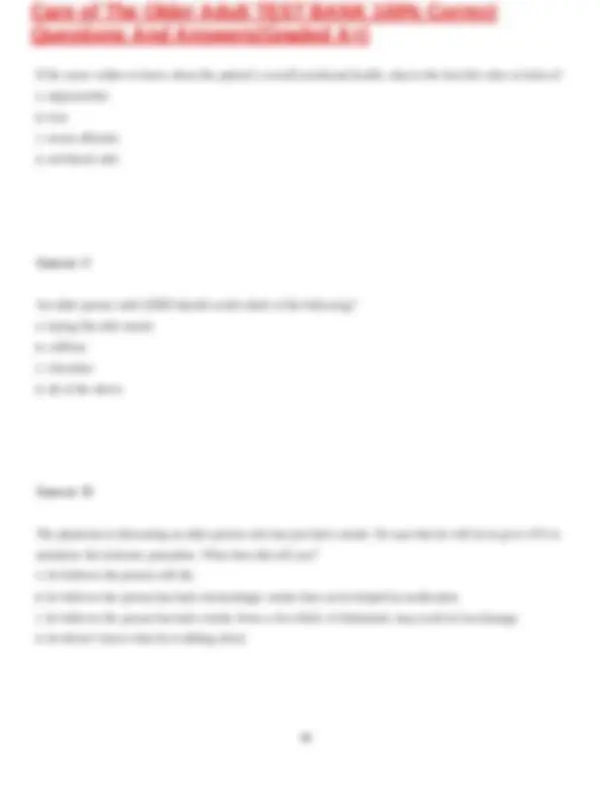
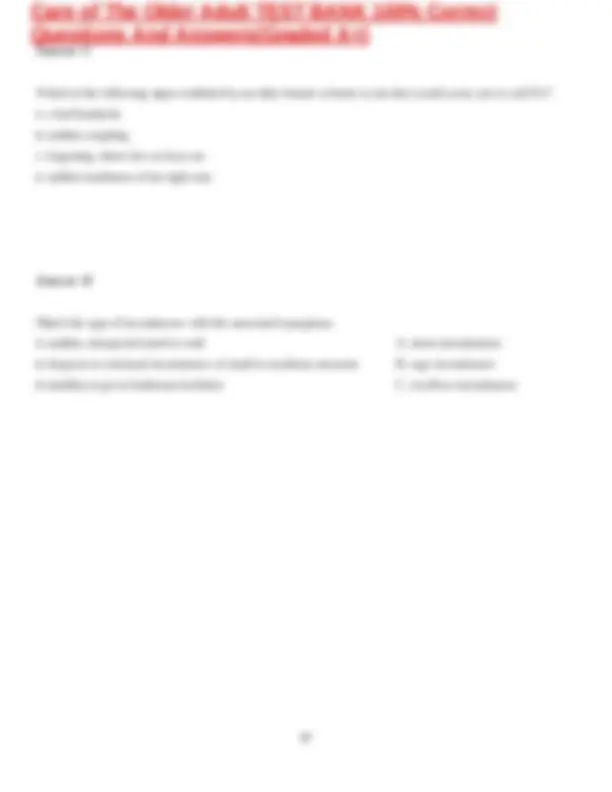
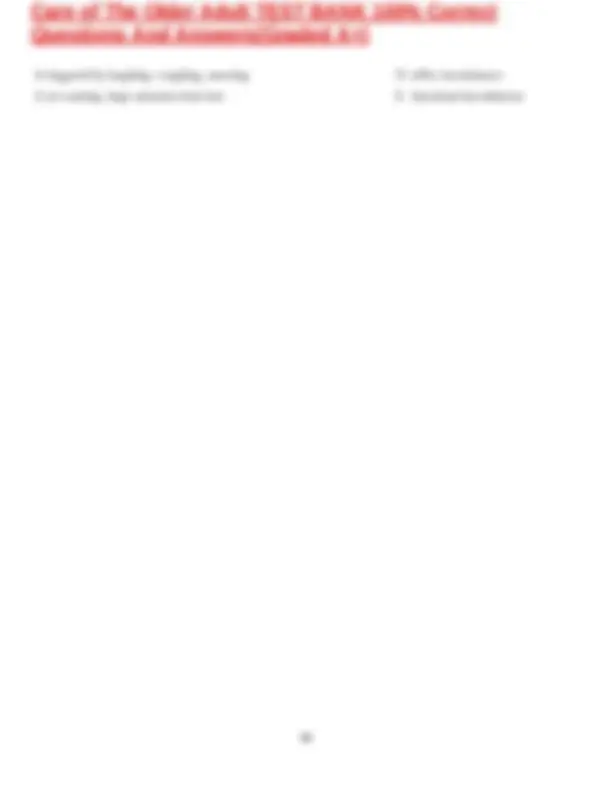
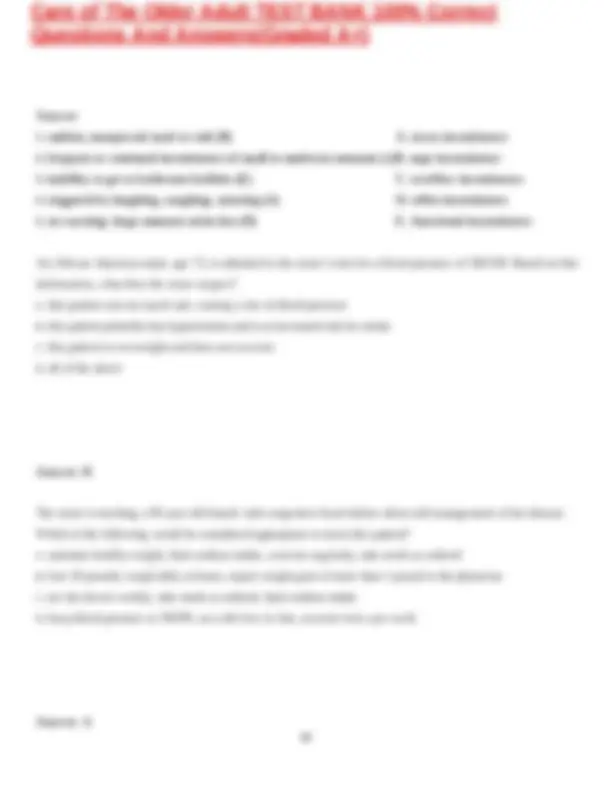
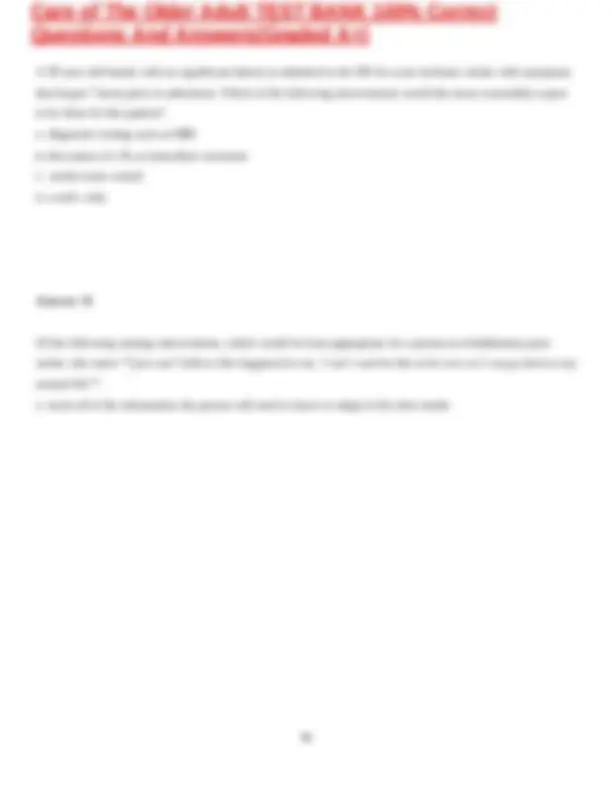
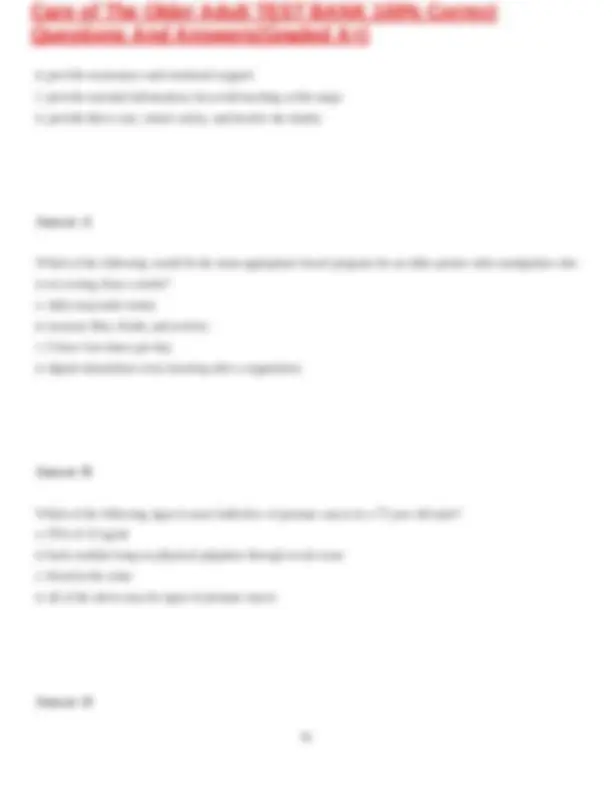
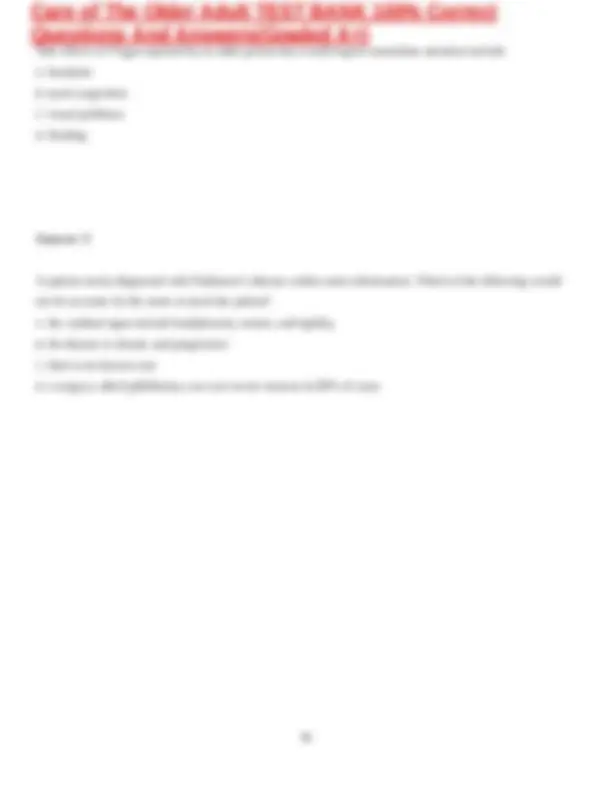
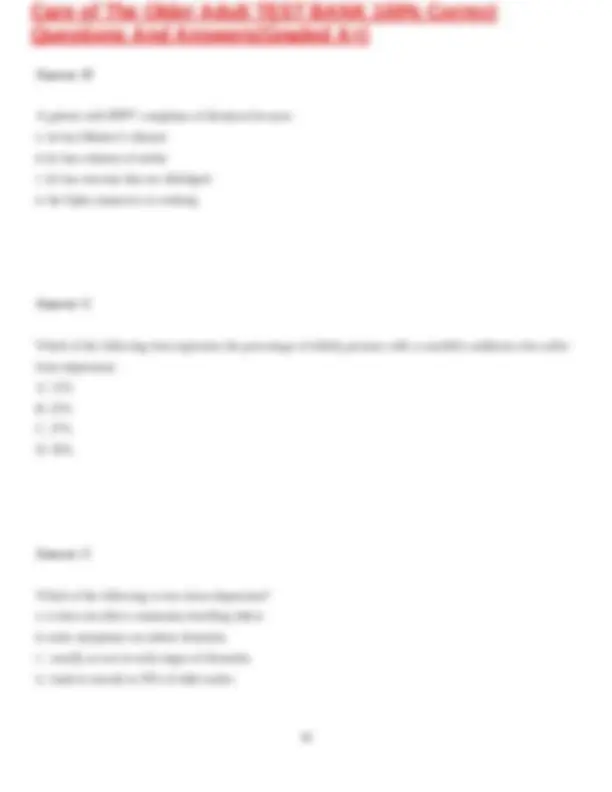
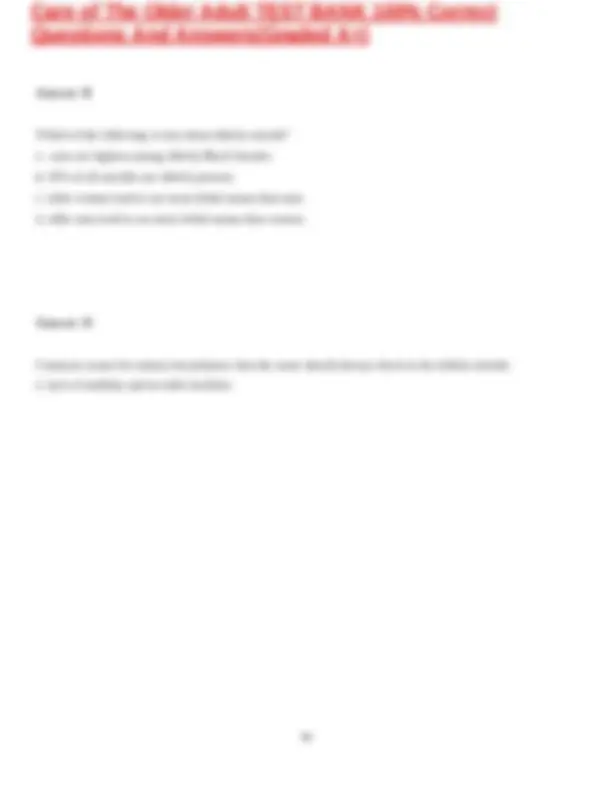
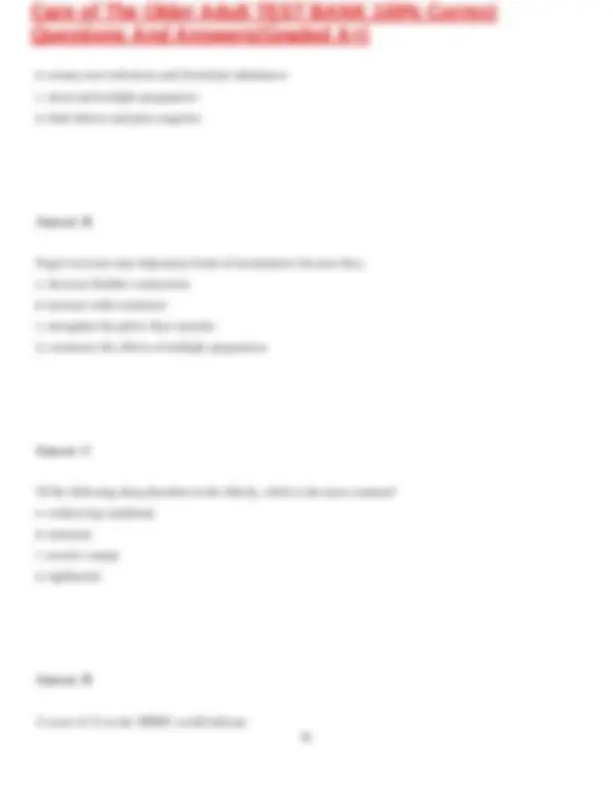
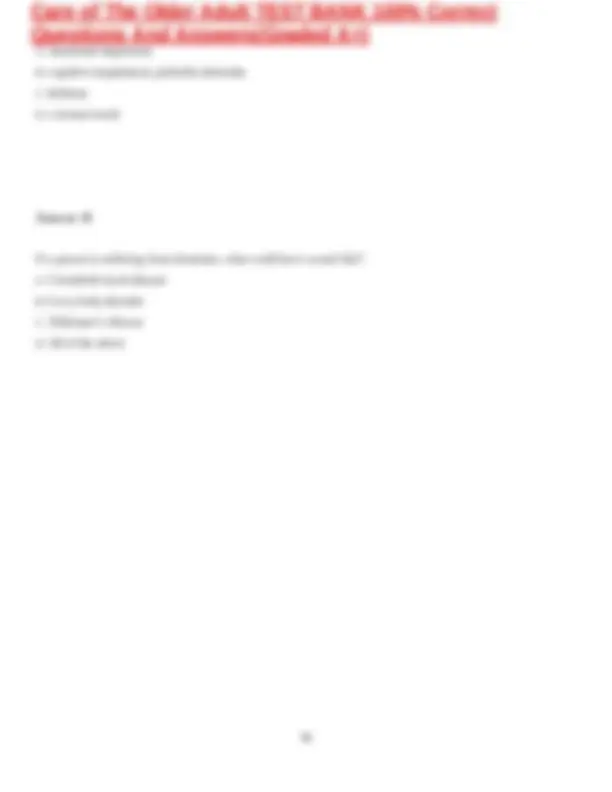
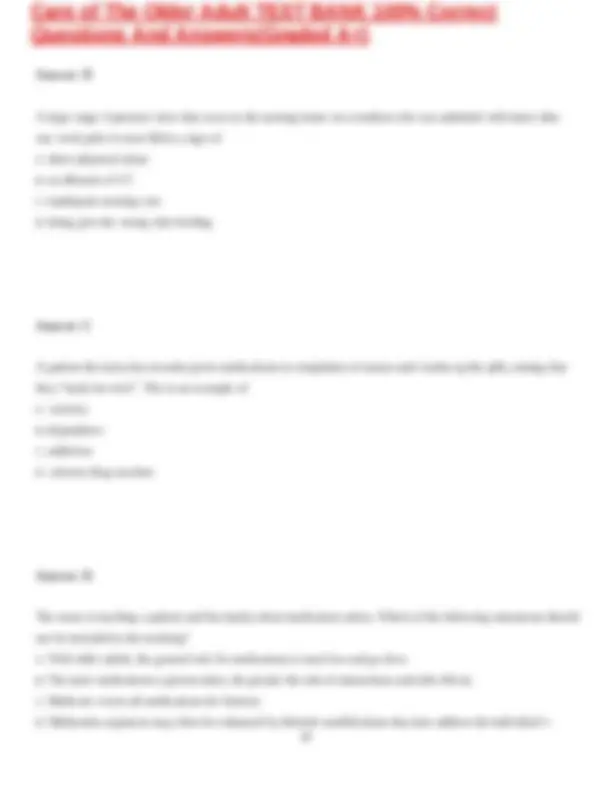
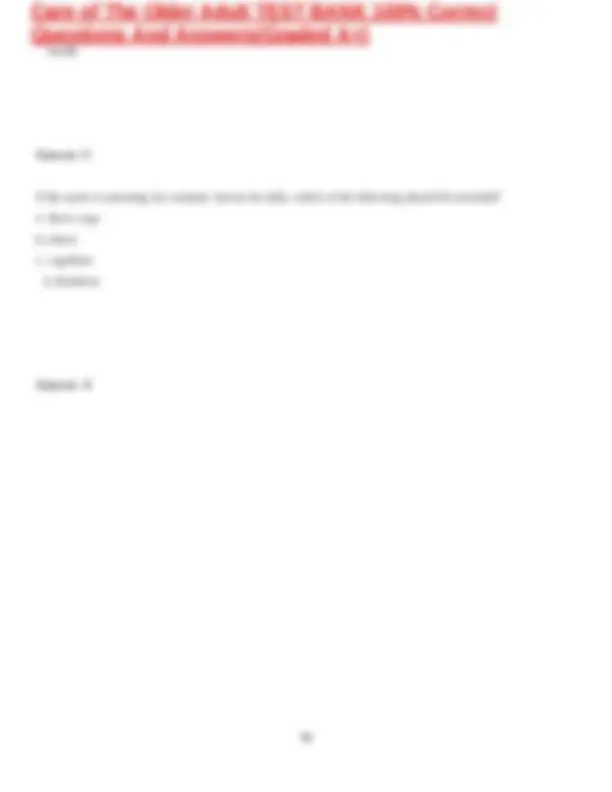
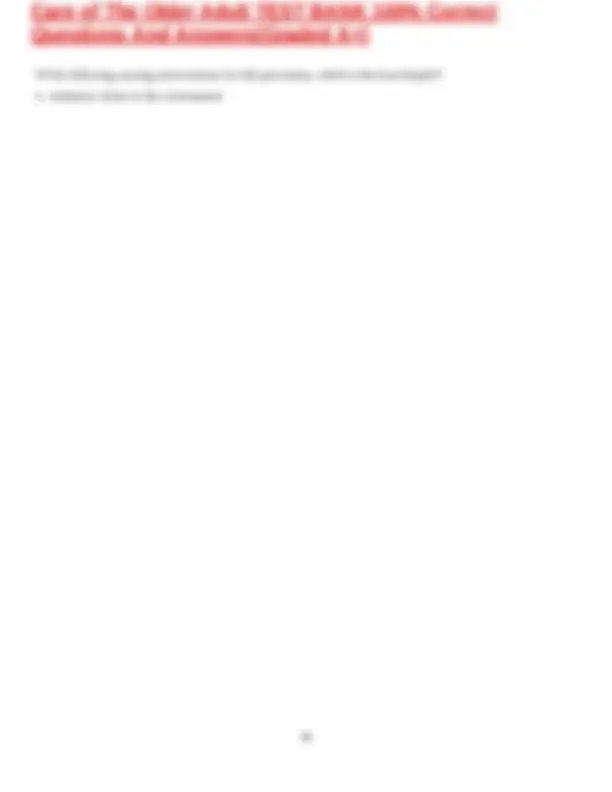
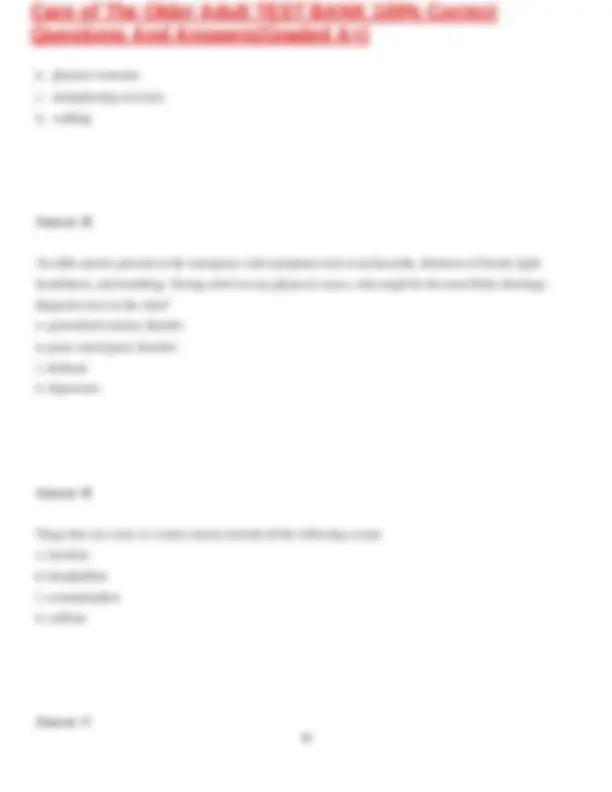


Study with the several resources on Docsity

Earn points by helping other students or get them with a premium plan


Prepare for your exams
Study with the several resources on Docsity

Earn points to download
Earn points by helping other students or get them with a premium plan
Community
Ask the community for help and clear up your study doubts
Discover the best universities in your country according to Docsity users
Free resources
Download our free guides on studying techniques, anxiety management strategies, and thesis advice from Docsity tutors
A series of test bank questions and answers related to the care of older adults. The questions cover various topics such as assessment, nutrition, medications, and neurological assessment. Intended for educational purposes and can be used for studying or preparing for exams on gerontology or geriatric nursing.
Typology: Exercises
1 / 141

This page cannot be seen from the preview
Don't miss anything!





























































































A negative attitude towards aging and the aged is called: A. geriatrics B. racism C. ageism D. ethnocentrism Answer: C
Answer: B
D. Greg Reed, RN, MSN Answer: B The AACN/John A. Hartford Foundation Competencies are helpful to nurses because they: A. offer suggestions about how to gain employment in geriatrics B. provide a guideline for the knowledge that is expected to provide quality care to older adults C. were designed to prepare nurses to pass the State Board Exam D. were written for nurses working on a graduate degree in gerontology Answer: B The nurse has a question about the appropriateness of an older patient's medication dose. Which of the following professionals would be best qualified to answer such a question? A. the geropsychologist B. the geropharmacist C. the financial gerontologist D. the gerontological rehabilitation nurse Answer: B The health care professional who wants to gain experience in working with older adults who are post-acutely recovering from serious illness or injury, have challenging medical issues needing 24 hour per day nursing, but
who cannot yet tolerate a full rehabilitation program may be best suited for employment in what setting: A. acute care hospital B. assisted living C. rehabilitation D. subacute care Answer: D Which of the following levels of care would be most appropriate for a healthy 84 year old man who can take care of himself, but wants to live in a place where he can socialize and have help available if needed? A. a group foster home B. a transitional care unit C. an independent unit in a senior living complex D. assisted living in a nursing home
Answer: A What is the most compelling reason for health professionals to be educated in the area of gerontology? A. to address the comprehensive nursing shortage B. to make an increase in salary C. to prepare to be challenged by the educated baby boomers D. to prepare to care for the growing number of older persons in the population Answer: D An intergenerational approach to care for the aging is advisable because of what fact? A. baby boomers want their children to take of them in old age B. Gen X and Gen Y persons do not know anything about aging
C. most older persons are cared for by their children D. nearly a half million grandparents are raising their grandchildren Answer: D What best explains the lack of prepared, qualified health professionals to care for the aged? A. a shortage of nursing faculty B. medical programs not including gerontology content C. not enough health professionals choosing gero as a specialty D. the current nursing shortage Answer: C There were approximately 36 million Americans over the age of 65 years in 2000 and this number is expected to grow to 71 million by 2030 A. TRUE B. FALSE Answer: A Over half of women over the age of 85 are widowed A. TRUE B. FALSE
Answer: A Minority elderly groups are growing and thus present unique challenges for nurses today A. TRUE B. FALSE Answer: A The majority of older persons live alone A. TRUE B. FALSE Answer: B Older women who live alone tend to be more from lower income groups than those who are married A. TRUE B. FALSE Answer: A Elderly Hispanics rate their overall health significantly higher than those from other ethnic groups A. TRUE
Answer: B (It's Heart Disease, Cancer and Strokes) Which ethnic/cultural group has a higher rate of diabetes, hypertension, and chronic renal disease than other ethnic groups? A. African Americans B. Hispanics C. Asians and Pacific Islanders D. American Indians and Alaskan natives Answer: A Which ethnic/cultural group is the most rapidly growing ethnic minority, and less likely to obtain preventive services such as flu vaccines and mammograms? A. African Americans B. Hispanics C. Asians and Pacific Islanders D. American Indians and Alaskan natives Answer: B
Which ethnic/cultural group is comprised of many subgroups and generally have a longer life expectancy than white Americans? A. African Americans B. Hispanics C. Asians and Pacific Islanders D. American Indians and Alaskan natives Answer: C Which ethnic/cultural group makes up a small percentage of America's elderly population and have increased morbidity and mortality related to diabetes and renal disease? A. African Americans B. Hispanics C. Asians and Pacific Islanders
Answer: D List the three leading causes of death in the elderly: Answer: Heart disease, Cancer, Stroke The theory of aging that says that personality and coping patterns remain consistent through life is: A. continuity B. gerotranscendence C. human needs D. life course Answer: A Erikson's stages of personality development for a person that is 76 years old would be: A. autonomy versus shame B. integrity versus despair C. generativity versus isolation D. trust versus mistrust Answer: B
A biological theory of aging that is based on random events that cause cellular damage versus genetically programmed events is called: A. nonstochastic B. Orgel / error C. selective optimization D. stochastic Answer: B A scientist who believes that people have a genetic programming that determines or predicts longevity is a supporter of which theory? A. age stratification B. cross-link C. free radical
The physician tells his 81-year-old male patient that his health has deteriorated due to the exogenous sources of free radicals to which he has exposed himself for many years. To what is the physician most likely referring? A. the ozone layer B. the patient's cigarette smoking C. the patient's alcohol consumption D. radiation from the patient's microwave Answer: B MATCHI NG